Marbeth Skwarczynski's Blog, page 10
March 18, 2022
Neverending Learning
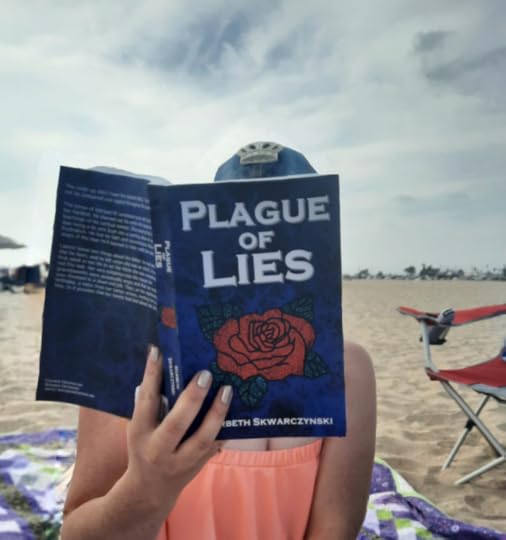
One of the unofficial mottos of my life has been “Never Stop Learning.” It isn’t so much about taking formal classes or setting lessons for oneself, as it is the open willingness to step outside of one’s comfort zone to try something new. Or to make oneself aware of learning opportunities that present themselves in the most mundane ways. I’ve learned many things from movies, television, music, and even board games, but of course, in a blog post by “The Lit Lady,” you know I stand firmly behind the idea that reading books is a primary aspect of education.
I grew up reading (and rereading) Laura Ingalls Wilder’s Little House series. That encouraged me, in turn, to read biographies of historical figures and classics. Reading information from books prompted me to engage more when I visited museums and gawked at items from the past. I was excited when I saw things I’d only read about and loved any hands-on exhibit that allowed me to experience old technology. I worked pitcher pumps and rail-way hand-cars and ground corn using a mortar and pestle. If characters in a book made bread, then I attempted it as well. I never got the knack of sewing like some of my early heroines, but loved embroidery. Like Marty in Love Comes Softly, I gave gardening a try. I learned to embrace and appreciate the quiet of solitude like the boy in My Side of the Mountain. I became a journaling fiend because of Harriet, the Spy.
The Little House (9 Volumes Set)Love Comes Softly (Love Comes Softly Book #1)My Side of the MountainHarriet the Spy: 50th Anniversary EditionThe hands-on moments both reinforced the pictures in my brain and gave me muscle memory to help me better empathize with the characters in the books and the people I met in the real world. As a teacher, I’d often have students attempt to recreate what they’d read in books. Usually, it was something simple. We made butter in mason jars by shaking heavy cream back and forth until it congealed while reading Little House in the Big Woods. I made them stacks of pancakes while they read Farmer Boy. As a teacher, I fully encouraged candy-eating while we read Charlie and the Chocolate Factory. We watched a YouTube tutorial on making Turkish delight when it came to The Lion, the Witch, and the Wardrobe. (Everyone was happy that we didn’t have to eat that.)
Charlie and the Chocolate Factory (Charlie Bucket Book 1)The Lion, the Witch and the Wardrobe (Chronicles of Narnia Book 2)In history classes, I had students create a coat of arms for themselves when studying Medieval European heraldry. We learned how to brew the perfect cup of tea, drinking the results while learning about the Boston Tea Party. Students ate peanuts and black-eyed peas while I lectured about the reconstruction era. They enjoyed candy invented during the Great Depression while playing Monopoly (did you know that Snickers was initially a five-cent meal-replacement bar?) and read an article about the economics of the progressive era before reading the symbolic treatment of the subject in The Wizard of Oz.
The Wizard of Oz (Puffin Classics)
I designed these hands-on moments to encourage students to look for alternate learning combinations in places they might not expect. I did it because engaging in multiple avenues of learning a subject worked well for me. When we learned about the events leading up to the destruction of the Spanish Armada, we watched the old Errol Flynn movie, The Sea-Hawk (correcting the usual Hollywood mistakes as we went). The subject of World War I demanded a viewing of All Quiet on the Western Front. World War II? The Boy in the Striped Pajamas. For the space age, I took to YouTube so we could watch the moon landing as it was televised back in 1969 (and I really regret that I didn’t think to break out the Tang at the time). We watched the Tet Offensive special from the Viet Nam War, the release of the hostages from Iran, and the tragedy of 9/11.
The Sea HawkAll Quiet On The Western FrontThe Boy In The Striped PajamasIt was my responsibility as a teacher to make that history come alive for my students. But, guess what? It was also the responsibility of the parents, the grandparents, the aunts, the uncles, the siblings, and cousins. Ultimately, however, it was the responsibility of the students themselves. Students picked up on this. They would tell me when a historical event we studied or a literary reference we’d covered appeared in their after-school lives. It might come in the form of a video game, a movie, a television show, a book, a comic. Or even at Knott’s Scary Farm, where the park based an entire attraction on the works of Poe. The seniors in my American Lit class couldn’t wait to tell me about that!
I’m no longer in a classroom, but I’m still teaching and learning.
This summer, we had a relaxing day at the beach with our kids and grandkids. It was everything wonderfully chaotic you could imagine from a beach trip. I had music playing on my phone. Various family members went to the shore to jump in the waves while others snacked and chatted, making themselves comfortable on blankets and chairs. Our grandson had been reading books about the ocean and its creatures, and he shared some things he’d learned about waves and tides. My daughter-in-law made the cousins into “mermaids,” telling them stories rife with mermaid lore. Our tool-crazed youngest grandson set himself to building sandcastles, experimenting with wet and dry sand as a foundation. We alternately discussed news events, family anecdotes, career changes, and plans for the near future. In short, we talked — constantly — enjoying the day together and including the kids in all of it.
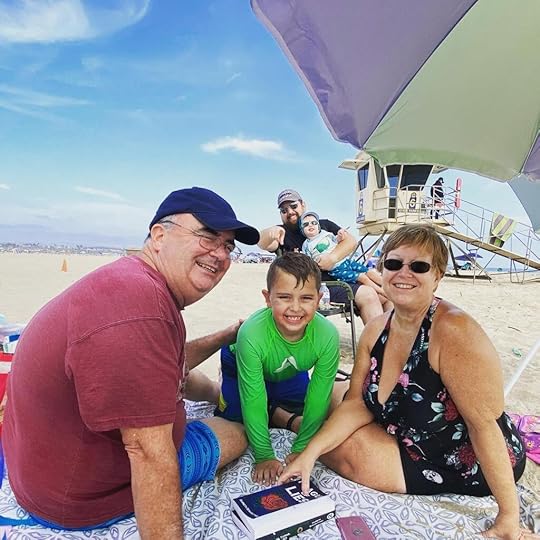


Later, we had pizza and ice cream before exploring the beautiful town of Laguna beach.

One of the best moments was discovering a “fairy village” next to the library. It was a beautiful, flower-filled little make-believe land that charmed the adults and the children alike. Grampa thought the kids were cute, but the magical miniatures? They were okay (he’s not a fantasy fan). Mama and Mimi, however, took each path with the littles, sharing the vast wealth of fairy knowledge we’d gleaned from J.M. Barrie and all who continued his story after him. “Don’t say you don’t believe in fairies! That will kill them! Quick, clap your hands to let them know you believe!” “Do you remember how fairies came to be? When the first baby laughed for the first time, the laughter broke apart in a hundred pieces, and fairies were born!” We answered so many sweet questions and asked many of our own while exploring the tiny beach, houses, and shops. We even discovered the fairy church (“St. Fairies by the Sea”), a library, and a post office.
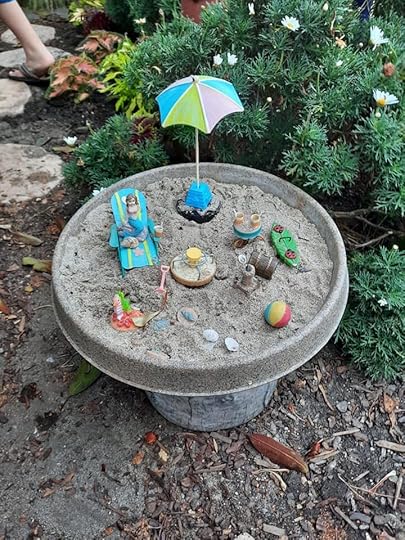


We left uplifted and excited, still firmly ensconced in the fantasy world provided by the library, leading to conversations about other fantasy lands we’d read about in favorite books.
On our way out of town that evening, we passed an English phone booth — an oddity both because we were in Southern California but also because phone booths of any type are rare finds these days. Our oldest grandson viewed the bright red box and asked, “Why did they need phone booths?” Our first response was to chuckle, not at his question, but at how things had changed. But, between the three adults in the car, I think we came up with a coherent explanation that there was a time when people didn’t have phones on their persons at all times.
And that’s when I realized how effortlessly we’d exchanged ideas, taught new information, and willingly learned all day long.
It would have been easy to laugh at our grandson’s query as an odd question asked by an inexperienced child, but it was hardly that. Instead, it was a person’s legitimate curiosity of a historical world he didn’t know. He asked for an answer without shame or false pride because he wanted that information. He wanted to learn. And because we had the answer, we wanted to share that data. That was our privilege as his teachers.
His wasn’t the only quizzical reaction to the “old world” that we got from our grandbabies this month. Because the grandkids were visiting us at my sister’s home, they were introduced to the sound of a landline phone. The first time my youngest granddaughter heard it ring, it sent her into a panic. What was this deafening alarm echoing throughout the house? And why weren’t any of the adults springing into action? It was time again for a history lesson and reassurance every time the phone rang after that.
Then came the oddity of cable television. “Mimi, I don’t want to watch this show.” “That’s a commercial, Sweetie. It’s almost over.” “Can we watch Peppa Pig instead?” “Um, no. It’s cable. We have to watch what the station chooses.” I had to do some fast talking to get them to look at PBS programming like it was an adventure.
The truth is, every generation must be “caught up” historically by the previous generation. When adults ignore or refuse to teach, the children and grandchildren that come after them miss out on valuable information.
My grandchildren embraced that responsibility when they asked us questions about phone booths, landlines, and cable this summer. We assumed it when we answered them as honestly and as clearly as we could. Our grandchildren know that they can ask their parents and grandparents any question, and we’ll respond to the best of our ability. We also tell them when we don’t know the answer. That in itself becomes a teaching moment as we cuddle close to Google information, learn something new, and then share it with anyone who wasn’t there for our moment of discovery.
Learning never ends, ever, but sometimes the desire to learn becomes muted. Information comes so quickly that it becomes a little scary — not for kids who are used to learning a half-dozen new things every day, but for the adults in their lives. As a result, we adults slow down and find ourselves suddenly out of the loop. So we have a choice: avoid anything new and become ever more entrenched in our comfort zones or take a hint from the children in our lives and ask questions with a willingness to learn. That means swallowing our pride and letting ourselves be taught. If you are lucky, you will meet some terrific teachers along the way. If you are extraordinarily fortunate, some of those teachers will be the children you love.
[image error]February 8, 2022
The Vanity of Bonfires

Recently two news stories broke concerning the banning or burning of books. Readers especially become very vocal about such reports and tend to band together to stop these practices from happening “ever again.” But they will happen again. Repeatedly.
The issue isn’t the materials offered up for burnt sacrifice. It’s the hearts and minds of those who feel that they have the right to determine what others read. They won’t be able to “fix” the “big issues” in the world, but they can push in and do something showy. It lets them flex their muscles to make people think they are doing something important.
In one case, a school board decided that anthropomorphic rodents shouldn’t curse or be depicted as “nude” in the graphic novel about the Holocaust, Maus. In another, a religious leader claims that certain books, like the Harry Potter and Twilight series, contain demonic influences and “real” spells. On a much smaller scale, I witnessed a parent confront a teacher demanding to know why the stories her child was being exposed to “always have conflict” and insisting on “only happy” stories. And then there was the worrying question concerning my novels. “They’re not ALL about spiritual abuse in ministry, are they?”
For me, this is a frustrating (and repetitious) problem. I was raised by a parent who demanded that inappropriate books be removed from the school library. Of course, following the standards of that parent would have meant the majority of the reading material would be removed. The librarian said as much. They removed the student (me) since they couldn’t get the books removed or the library closed. So I had no access to any books that my parent didn’t approve of. Unfortunately, they weren’t a big reader, so my collection was pretty small. I made up for it as an adult. I created my own library.

My parent wanted to control what others (not just me) read and wanted to be the sole arbiter of what was “appropriate.” This is the same issue I see today. That parent who wanted her child to only read “conflict-free” stories had no idea that conflict is a necessary element of literature. There is no such thing as a story without conflict. The concern about my novels was reminiscent of that conversation. Some people only want “nice” books.
My books highlight spiritual abuse in its various forms. My characters remove themselves from ungodly and unbiblical situations. They grow and develop as they recover from that abuse. My subject matter makes some people nervous. They openly wonder if talking about abuse will “hurt the ministry” of certain churches. I have to assure them that my books won’t hurt those ministries. The abusers have already done that. Fortunately, I also have some readers who let me know that I’m telling their stories. They appreciate the truth finally coming out.
Right now, my social media pages are filled with lists of “banned books” and rants about the practice by some communities to remove “offensive materials” from schools and libraries. I get the frustration. I do, but I’m fed up with those who demand others “stop banning books” and brag about how many banned books they’ve read, but then in other posts come just short of banning books themselves. Their criticism of authors goes beyond, “That book wasn’t for me” to saying things like “no one should read her books!” “I’m not buying anything she writes, and no one else should either,” “I’d disown my kid if they brought home one of his books!” Um — yeah. You may not recognize it in yourself, but you’re a borderline book-banner. If you don’t want to read a book/author, then don’t. But, if you’re actively trying to get others to reject those books/authors, then you’re no better than those who attempt to remove volumes from school and local public libraries physically. You don’t have the right to tell others what they can or cannot read.
I understand that parents have an obligation to safeguard their kids, and they should be aware of their assigned or recreational reading. However, instead of immediately dismissing books based on reviews or a few passages taken out of context, parents can read books with their children. That way, parents can discuss the stories with their kids, clarify where they stand on the presented issues, and encourage the children to ask tough questions in a safe environment. Parents can even respectfully approach the teacher who has assigned questionable work and ask why that particular book is essential to the curriculum. If the parents decide, after due diligence, that the book is not for their child, they can work with the teacher to find an alternate title.
But not everyone wants to solve problems quietly. Instead, they rail at teachers in school board meetings. They complain to the press. They create post after post on their social media demanding that their child (and by extension ALL children) be protected from books they personally do not like. I’ve heard some doozies, usually by people who have never read the books, have no intention of reading the books, and yet are terrified and angry about the books.
“Harry Potter promotes witchcraft, and the books contain actual spells!”
If you read the Harry Potter series, you’ll discover that it promotes friendship and sacrifice for others. In the first book, The Sorcerer’s Stone, much of the background for the actual stone refers to a man featured in, The Hunchback of Notre Dame — which makes sense since J.K. Rowling studied the French classics in college. The “spells” are simply common Latin words. For instance, nox is Latin for “night” while lumos means light. Even the deadliest spell in the books, avada kedavra, is Latin for “I destroy as I speak” and is a play on the familiar “magic word” abracadabra, meaning, “I create as I speak.” The most important thing to remember, though? While bits and pieces are taken from the “real” world, Harry Potter is a work of fantasy fiction. It isn’t true. Yes, its fans like to pretend, but they know it’s pretend. The only people who don’t seem to understand that these stories are pure fantasy are the ones who attempt to get them banned.
Harry Potter and the Sorcerer's Stone
The Twilight Series has also been maligned, even though its author based her work on classic vampire tales, then added her own twists. People object to Edward “stalking” Bella, watching over her while she sleeps. Creepy? You bet. But it’s also found in The Vampyre and Dracula. It’s part of vampiric lore. Meyer’s twist, however, is that instead of stalking a potential victim to take her soul, Edward stands guard to protect Bella’s soul. Simultaneously, Edward wonders if he even has one.
Dracula (1897) by Bram Stoker (Original Version)
In Meyer’s fantasy world, morality remains a choice, even in vampire circles where the existence of a vampire’s soul is in question. Carlisle (the “father” of the Cullens) believes it does exist. He was raised in a strict religious household by a father who was a puritan pastor. The father “hunted” vampires — a nod to the witch hunts of the time — and was training his son to do the same. The father maintained that vampires were soulless creatures who should be destroyed. Carlisle hid when he was bitten. He knew he could never go home. Once he was changed, Carlisle realized that he still felt soul/compassion-fueled emotion and empathy. He dedicated his life to helping others and encouraged other vampires to follow his example. One might miss some of the deeper parts of Twilight if they focus solely on the “romance” story and “tsk” at the supposed stalking.
Twilight (The Twilight Saga Book 1)
It is up to the reader to decide what they should or shouldn’t read, but people have been frightened away from making their own decisions. Bullies who claim particular works are “garbage” and that their readers are stupid or ignorant push potential readers away from stories that might be inspirational or helpful to them. Speakers who make sweeping statements like, “No Christian should ever read that book” take away the Christian’s opportunity to grow and defend their faith through relatively easy obstacles. I’ve encouraged people who “weren’t sure” about a book to read it with a pencil and notebook so that they can “talk back” to the author. I did this with Di Vinci Code, correcting Don Brown’s assumptions about the Bible and Christianity. I also did this with Exploring Genesis, a volume used as a textbook at a popular Christian college. I found more mistakes and fallible arguments in the textbook than in the novel. It’s time for individuals to reclaim their autonomy. Remember that you are free to read what you want and decide for yourself.
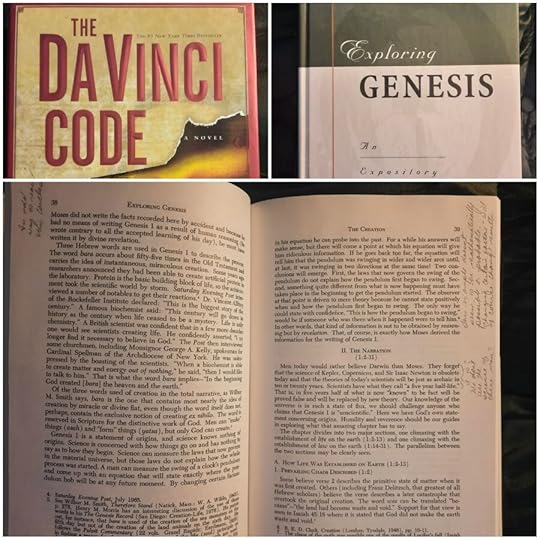
Unfortunately, many people develop a fear of autonomy. They keep their circle of acquaintances small, their activity minimal, and their outside influences limited. They have been trained to distrust happiness and put their choices in the hands of those who claim to know better.
This issue is especially apparent in churches. Worship is deflected from God and refocused on the leaders on the platform and behind the pulpit. God, who demands individual belief and commitment, created a “church body” wherein dramatically different individuals work together — still diverse but compatible and equal. Misguiding leaders, however, demand that people give up their personality, preferences, and happiness to remake themselves into mirror images of their pastors and teachers.
So, if a pastor/teacher/evangelist has decided that a book is evil (despite having never read it), none of their followers should read it either. Likewise, if they declare that a non-church group practices demon worship in their rituals, then the followers must agree — even if they’ve never heard such a thing before. They are not encouraged to do any research for themselves for fear of opening themselves up to demonic influences. They must trust that what they are told is true.
Recently, a perfect example of this kind of control and purposeful ignorance played out when a pastor convinced his congregation that they needed to have a bonfire to burn all of the materials he considered to be demonically inspired. In every event announcement, he set up his followers to anticipate his/their persecution from “unbelievers” (nothing brings people together like a common enemy). His list of items to burn was extensive and varied — music, books, movies, collectibles — and mostly from popular culture.
He used an event mentioned in Acts 19 for his example. His followers, when confronted, parroted the same verse. Without fail, though, they misapplied the passage and took it out of context.
(Acts 19:19) Many of them also which used curious arts brought their books together, and burned them before all men: and they counted the price of them, and found it fifty thousand pieces of silver.
According to several of this man’s followers, the Apostles (specifically Paul) instructed people to burn their magic books.
Except he didn’t. Paul had nothing to do with it. It was a spontaneous action of certain new believers. They expressed their new faith after walking away from paganism (where bonfires were commonly used). Acts 19:19 records an event that happened. It doesn’t command believers to follow suit.
The context of this event is essential and all but ignored by the pastor and his congregation. The story begins when Paul was traveling through Ephesus in Asia Minor and met with followers of John the Baptist. They’d been baptized by him years before. John’s baptism was one of repentance (the Greek word metanoia meaning compunction for guilt, including reformation; by implication, reversal of another’s decision). The purpose of the repentance preached by John was to prepare people’s hearts for Christ’s time on earth. The men of Ephesus, however, had missed the main point. They hadn’t heard of Christ or the Holy Spirit. So Paul taught and guided them into Salvation through Jesus, and they were baptized as Christ-followers.
And it came to pass, that, while Apollos was at Corinth, Paul having passed through the upper coasts came to Ephesus: and finding certain disciples, He said unto them, Have ye received the Holy Ghost since ye believed? And they said unto him, We have not so much as heard whether there be any Holy Ghost. And he said unto them, Unto what then were ye baptized? And they said, Unto John’s baptism. Then said Paul, John verily baptized with the baptism of repentance, saying unto the people, that they should believe on him which should come after him, that is, on Christ Jesus. When they heard this, they were baptized in the name of the Lord Jesus. Acts 19:1–5
One of the outward signs of salvation and the baptism of the Holy Ghost among new populations of believers was speaking in tongues (glōssa: Of uncertain affinity; the tongue; by implication a language) and prophesying (prophēteuō: to foretell events, divine, speak under inspiration, exercise the prophetic office). Both of these gifts facilitated the sharing of Good News with people of other language groups
Paul remained in Ephesus for two years. He and the twelve men who were converted under his leadership spoke boldly in the synagogue for three months (because Paul was both Jewish and a Christian, he worshipped and fellowshipped with both groups). His message was not well-received by everyone, and the religious leaders questioned the reputation of the Christ-followers. Paul left the synagogue, taking his disciples (followers) with him. Through their continued teaching and preaching, they reached all of Asia Minor in two years.
And when Paul had laid his hands upon them, the Holy Ghost came on them; and they spake with tongues, and prophesied. And all the men were about twelve. And he went into the synagogue, and spake boldly for the space of three months, disputing and persuading the things concerning the kingdom of God. But when divers were hardened, and believed not, but spake evil of that way before the multitude, he departed from them, and separated the disciples, disputing daily in the school of one Tyrannus. And this continued by the space of two years; so that all they which dwelt in Asia heard the word of the Lord Jesus, both Jews and Greeks. (Acts 6:10)
To keep the momentum going, God worked miracles among the people of Asia Minor, using Paul as His intermediary. God was so generous with His power that even items that belonged to Paul were used to heal the diseased.
Those who had once badmouthed the followers of Christ now saw the power God gave to Paul and wanted that same power for themselves. The word “vagabond” (perierchomai: to come all around, that is, stroll, vacillate, veer: — fetch a compass, vagabond, wandering about) is used to describe a specific group of these men as turning from one teaching to another with ease — whatever will put them front and center. They called for God’s power to be showered down on them while using the names of Jesus and Paul as the conduit.
An example is made of seven such vagabonds. They were sons of a high-ranking priest who set themselves up as exorcists, using the borrowed power of names of men they didn’t even believe. They were called out for their disbelief — by a demon.
The demon looked at these men who were setting themselves up as leaders and using God’s name in vain (shâv’: in the sense of desolating; evil (as destructive), literally (ruin) or morally (especially guile); figuratively idolatry (as false, subjectively), uselessness). The seven sons of Sceva had no heart to follow God or spread the good news of the Gospel. Instead, they used the Gospel to promote themselves and increase their authority. Because their ministry was built on nothing but themselves, it was destroyed by the very demon over which they claimed to have power. The destruction of the sons’ “ministry” did not hurt the cause of Christ. Truth won out. Deceivers were exposed, but the name of Jesus was magnified (megalunō: to make (or declare) great, that is, increase or (figuratively) extol: — enlarge, magnify, shew great).
And God wrought special miracles by the hands of Paul: So that from his body were brought unto the sick handkerchiefs or aprons, and the diseases departed from them, and the evil spirits went out of them. Then certain of the vagabond Jews, exorcists, took upon them to call over them which had evil spirits the name of the Lord Jesus, saying, We adjure you by Jesus whom Paul preacheth. And there were seven sons of one Sceva, a Jew, and chief of the priests, which did so. And the evil spirit answered and said, Jesus I know, and Paul I know; but who are ye? And the man in whom the evil spirit was leaped on them, and overcame them, and prevailed against them, so that they fled out of that house naked and wounded. And this was known to all the Jews and Greeks also dwelling at Ephesus; and fear fell on them all, and the name of the Lord Jesus was magnified. Acts 19:11–17
Once the false teachers were exposed, the truth of God’s plan shined through. People who witnessed their destruction stepped forward to confess their evil deeds openly. Looking at the context, it’s likely that those who stepped forward at this point were the other power-hungry false teachers. Now, they were true believers (pisteuō: to have faith (in, upon, or with respect to, a person or thing), that is, credit; by implication to entrust, especially one’s spiritual well-being to Christ). They confessed (exomologeō: to acknowledge or (by implication of assent) agree fully) and “shewed” (anaggellō: to announce (in detail): — declare, rehearse, report, show, speak, tell) their deeds (praxis: practice, that is, (concretely) an act). The new believers openly admitted to their previous trickery and repented.
The former con-men spontaneously brought the items they’d used in the past to maintain their false positions of power — including their “magic” books. Note that Paul never told them to burn their books. Instead, it was their expression of their new faith. They knew exactly what they were destroying. Nothing they burned was something someone else convinced them was evil. The former false teachers openly admitted that they had been wrong but were now committed to doing right. The action of these previously powerful people confessing and repenting is the purpose of this story, not the bonfire. The Word of God grew and prevailed due to changed hearts, not because of a showy event filled with music, shouting, promises of outside persecution, and self-aggrandizement.
And many that believed came, and confessed, and shewed their deeds. Many of them also which used curious arts brought their books together, and burned them before all men: and they counted the price of them, and found it fifty thousand pieces of silver. So mightily grew the word of God and prevailed. (Acts 19: 18–20)
Bonfire preachers aren’t new. The most famous was Savonarola, a Dominican Friar who encouraged his followers to burn items that, according to the Catholic Church, might lead a person into sin. These items included cosmetics, playing cards, art, and books — including The Decameron by Boccaccio, which openly criticized the hypocrisy of the Church leaders.
Bonfire-styled book burnings have been a part of the social landscape ever since. Of course, most people know about the Nazi party burning books (mainly because it was featured in an Indiana Jones movie). Still, they weren’t the only ones trying to control information and entertainment. For example, when comic books became popular in the U.S., several communities organized protests, demanded they be banned, burned them in (yes, you guessed it) bonfires, and implemented strict censorship over the industry.
The first time I learned about book burnings was actually from a comic book from the 1970s called Spellbound. It was written by JCT Chick as part of his Crusader series and based on the testimony of John Todd (Lance Collins), who claimed that he had spent years in the music industry and that all rock albums were dedicated to Satan before their release. John Todd was later exposed as a fraud, but he influenced many evangelists to create anti-rock seminars and organize music and book bonfires of their own.
There is a significant difference between the “modern” book burners — from Savonarola to the book-burning pastor of last week — and those from Acts. The people in Acts showed repentance of their former lives of sin via their quest for power and their manipulation of others. Today, the atmosphere is just the opposite. They are celebrations of people “reclaiming” power by showing others how much holier they are by destroying something that may have no more significance than its influence on popular culture. Those who burn claim they are doing it in the “name of God,” but this isn’t something God has asked us to do. He’s asked us to love the Lord our God with everything we have and to love our neighbors as ourselves. He’s asked us to be kind to one another. To forgive one another. To develop tender hearts for each other. To do the things God has required of us — to do justly, love mercy, and walk humbly — we have to put aside our pride. It isn’t up to us to decide what others read, listen to, or watch for entertainment. There are far more critical issues at stake. Many of those issues are addressed in the books that are being destroyed.
It’s time to acknowledge the truth that it’s better to read than to burn.
[image error]January 20, 2022
Win Some, Lose Some: My Year in Resolutions
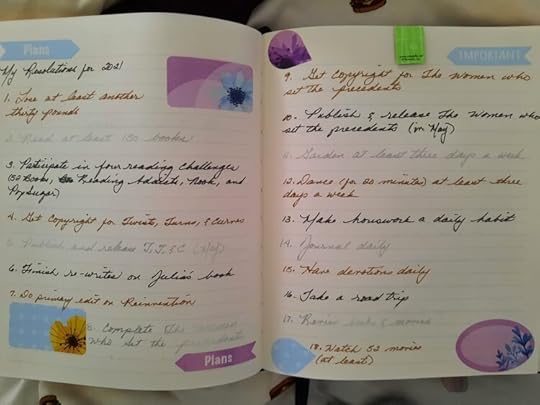
Like most people, I have an uncomfortable relationship with goals. Growing up, I watched a high-strung parent work themselves into the ground on almost a daily basis trying to complete a list of chores they’d written for themselves. In their eyes, the list reflected their character, so if they failed the list, they were failing at life. It didn’t create a pleasant atmosphere as the parent became more frustrated at every “real life” interruption of their tasks.
Then, I attended an ACE learning center in high school where students were instructed to write a daily goal for each subject they covered that week. In addition, it was recommended that we daily complete five pages of each of our workbooks covering history, English/literature, science, mathematics, and the Bible. If we didn’t achieve our goals for the day, we took those unfinished pages home. We were given a demerit if we didn’t complete them by the next day. Three demerits lead to after-school detention.
In other words, I grew up believing that there were negative consequences for not completing goals, and I took that idea into my adult life. Eventually, however, it backfired. I decided I didn’t want to be the parent who was always working from a to-do list and simultaneously missing out on family time, self-care, and fun. Instead, it was easier to drift through my days, taking things as they came. But, of course, there was a negative side to that too. Eventually, all those “adult responsibilities” piled up, and I needed to deal with them.
Over time, I learned to shorten my lists to just the basics I knew I could complete. I even spent a year journaling ONLY things I had finished, completely bypassing the to-do list philosophy. Eventually, I realized that while goals are great things to reach for, they aren’t always meant to be, and it is okay to let those goals go.
I had some excellent goals for 2021. Most of them had to do with reading since I am a proud, self-proclaimed book nerd, but I also had plans for my writing career and health. All of these were projects I knew I could complete, and on January 1, 2021, I knew I was in for a great year of accomplishment.
But, sometimes, life doesn’t get the memo.
I ended up not accomplishing many of my goals. I knew I wouldn’t about nine months in. That’s when I had a moment with myself to ask what the adverse effects would be if I did not complete the tasks I’d set in January. What would it look like if I focused all my energy on those specific tasks? What would happen if I chose to let them go?
I’ve experienced bouts of depression and anxiety in the past and am now vigilant against putting my mind in situations that trigger those episodes. So when I set myself that thought experiment, I was looking at how I would be affected emotionally, physically, and mentally. Would I get discouraged and down on myself, leaving my mental and emotional state open to a depressive spiral? Or would pushing toward those specific goals at the cost of everything else in my life lead to an equally unhealthy outcome. I concluded that if I tried to complete every plan I’d set at the beginning of the year but was nowhere near finishing, I’d spiral. So instead, I gave myself permission to do what was best for me at the moment rather than what I thought would be best for me back in January.
This January, my social media feeds were punctuated with posts about a “word for the year.” Looking back, I’d say my word for 2021 was “balance.” I kept some resolutions and let some fall away — all to keep myself steady.
Here are my resolutions for 2021 and how they panned out:
1. Lose at least another thirty pounds.
*Goal completed* I lost fifty. More importantly, though, I learned (am still learning) about making nutrition work for me. The weight loss wasn’t a vanity thing. It was a secondary issue. I was practically immobile at the beginning of 2020 due to extreme joint pain. I changed my diet out of desperation. My sister had some success with Keto, so I gave that a try with some slight variations (I’m a vegetarian, so the “rah-rah meat!” didn’t exactly appeal). It worked in that my joints started feeling better, and I could move more. Since I could move more, I could also lose some more of the weight that was contributing to my pain. I lost 30 lbs. but found Keto hard to maintain. So I took what I learned from 2020 into 2021 and developed a more “me friendly diet.” I started intermittent fasting (using the Fasting Tracker app as my guide) and recorded my caloric, vitamin, and mineral intake (using the My Fitness app).
MyFitnessPal | MyFitnessPal.com
I also finally embraced something I knew for years — that I am a food addict. But knowing that versus knowing what to do about it were two very different things. It helped that I read (twice!) a memoir by fellow food addict/musician Gary Barlow, which so clearly illustrated what food addiction really looks like.
A Better Me: The Sunday Times Number 1 Bestseller
I began to see the destructive patterns and triggers in my own food journey for the first time. That knowledge means more to me than losing a total of 80 lbs. — although, that’s pretty great, too, since I’m in less pain and more mobile.

2. Read at least 150 books.
*Goal not completed* This was the loss I felt the most. I constantly reminded myself that I wasn’t wrong for letting my usual reading goal slip by for a year. In 2020, I’d read 177 books, but I knew that in the upcoming months I had so much I wanted to accomplish, I cut my goal down to 150 for 2021.
Then I fell into the dreaded book hole. Nothing appealed, but I slogged through (and “slogging through” is the only description for the 700+ page book that I’m pretty sure dug that book hole for me — I’m looking at you, The Goldfinch!) and kept reading, though at a much slower pace and less often. Even when I discovered fantastic works by new authors, I’d slump again right after I finished their books. As a result, I also didn’t complete the two other reading goals I’d set for myself:
Participate in four reading challenges (52 Books, Reading Addicts, Nook, and Pop Sugar).Review every book I readThe bright light in the midst of my horrible reading year was discovering a new favorite author, Catherine Brusk. Her debut novel, What Love Washed Up, grabbed me with the first page and refused to let go. Discovering that it was the first in a series was a bonus. Since reading her books, I made contact with Catherine and we’ve developed a friendship. She’s not only a terrific author, she’s an amazing woman, and one of my new beta readers.
What Love Washed Up (Finding Faith Book 1)
3. Writing goals
*Goals completed* This is my big win of the year, and it’s why I’m not too down on myself for my failure to make my reading goals. My writing goals included:
Get copyright for Twists, Turns, and CurvesPublish and release Twists, Turns, and Curves in MayTwists, Turns, & Curves (The Rose Collection Book 2)
Finish rewrites on No Longer InvisibleDo primary edit on ReinventionComplete The Women Who set the PrecedentsGet copyright for The Women Who Set the PrecedentsPublish and release The Women Who Set the Precedents (release date pushed to March 2022)
Added to the list was the release of No Longer Invisible in October. I love this story!
No Longer Invisible (The Rose Collection Book 3)
4. Garden at least three days a week.
*Goal not completed* Yeah, it turned out that gardening in my little community brought my anxiety/agoraphobia roaring back. I had to let that go and satisfy myself with cucumbers from the store. I’m doing much better now.
5. Dance for at least 20 minutes three days a week.
*Goal completed (but adjusted)* Twenty minutes wasn’t nearly enough! However, since I exercise with my sister, I’ve got some built-in encouragement to get moving. We swim all summer long, but we’ve developed workouts that suit us perfectly and are gentle on our joints in the other three seasons. Most days, we exercise for well over an hour together.
6. Make housework a daily habit.
*Goal incomplete* Yeah. It’s never gonna happen.
7. Journal daily.
Goal Incomplete* I had to find my journal before writing this blog post, so that was a big fail.

8. Have devotions daily.
*Goal complete* I did my usual “Read through the Bible in a Year” devotions that were supposed to be in chronological order, but when Job is folded into Genesis, I start the year annoyed. I got over it soon enough and continued on. Fortunately, I was also writing a devotional that required word and context study and allowed me to dig into Scripture. Still, I felt like most of my devotion time was spent skimming the surface instead of diving deep. As a result, I radically changed my devotions for this year. I’m spending the year with Jesus in the Gospels.
Through the Word | Read the Bible. Understand it. Apply it. Make it a Habit.
9. Take a road trip.
Goal complete* This goal went beyond my planned journey as a passenger to putting myself into the driver’s seat. It was a quest that only looked like a Mimi driving to her son’s home 4 hours away to babysit her granddaughter. What was it really? Taking back some of my independence after years of letting myself become infantilized due to unreasoning fear. I even went so far as to fill the car with gas on my return home — a stressor I’ve avoided for years. It turned out it was no big deal. Who would have known? The entire thing may seem silly to those outside of my mind, but for me, I was slaying some dragons.
10. Watch at least 52 movies (and review them).
*Maybe?* The truth is, I didn’t keep track, and I didn’t review. I love movies, though, so I very likely did watch at least 52. For our anniversary, my husband surprised me with a day at the movies and a little movie roulette (when I watch whatever is playing next whenever I arrive at the box office). I approach the theater with excitement, no matter what film is playing. I also stream, rent, and have several DVD wallets full of artistic genius. So yeah, I probably completed this goal.
I accomplished some goals and let others slide, but guess what? My world didn’t implode. Instead, I still grew spiritually, mentally, and emotionally. And more aware of what I can handle gracefully versus what sends me off to the bathroom for a private cry.
I’ve also learned to be more vocal about what I can and cannot handle. Not because I expect others to cater to me — just the opposite — but because I’m working something out for myself. I’m also constantly aware of that line between self-care and selfishness. I never want to demand that others make concessions for my issues, nor do I want to be so self-involved that I neglect my friends and family.
My word for this year? Patience. It’s a scary word, I know, but only because I’ve been warned that praying for patience sets a person up for difficult trials — as if God sees it as a personal challenge to make the petitioner’s life miserable for even daring to ask. But, I will step away from that rather poisonous thinking and have a little more patience with myself. I’m learning and growing, and I’m aware that it will take time for me to become the person I want to be. By that same token, I can be more patient with others as they go through their own journeys.
https://medium.com/media/7823a83f63b7b377418ae9c9ee4e9d2c/href[image error]January 19, 2022
The Women Who Set the Precedents: An Exploration of the Bible’s Bill of Rights for Women.
A sneak peek (Epigraph and Chapter 1) of my new book coming out in March.
The Bible’s Bill of Rights for WomenProverbs 31:10–31
Who can find a virtuous woman? For her price is far above rubies.
A woman has the right to her own worth, and that worth is hers alone. Her value is based on her character, not her circumstances, family, or relationship status.
The heart of her husband doth safely trust in her, so that he shall have no need of spoil. She will do him good and not evil all the days of her life.
She has the right to develop her trustworthiness and kindness. She has the right to choose how she treats others.
She seeketh wool, and flax, and worketh willingly with her hands.
She has the right to work at her chosen job or career. She is like the merchants’ ships; she bringeth her food from afar. She has the right to choose the most economically and nutritionally sound way to provide the best food for her family.
She riseth also while it is yet night, and giveth meat to her household, and a portion to her maidens.
She has the right to run her household and assign jobs, chores, and responsibilities to those under her leadership.
She considereth a field, and buyeth it: with the fruit of her hands she planteth a vineyard.
She has the right to own property, to develop that property as she sees fit, and to reap the benefits of that property’s equity.
She girdeth her loins with strength, and strengtheneth her arms.
She has the right to be physically strong and fit.
She perceiveth that her merchandise is good: her candle goeth not out by night. She layeth her hands to the spindle, and her hands hold the distaff.
She has the right to compete in the marketplace and to put in the time and effort it takes to make a profit.
She stretcheth out her hand to the poor; yea, she reacheth forth her hands to the needy.
She has the right to be charitable and generous. She has the right to help those who cannot help themselves.
She is not afraid of the snow for her household: for all her household are clothed with scarlet.
She has the right to provide for all of those under her care.
She maketh herself coverings of tapestry; her clothing is silk and purple.
She has the right to be fashionable.
Her husband is known in the gates, when he sitteth among the elders of the land.
She has the right to share her reputation with others.
She maketh fine linen, and selleth it; and delivereth girdles unto the merchant.
She has the right to prove her worth in the marketplace.
Strength and honour are her clothing; and she shall rejoice in time to come.
She has the right to create her vision of self-worth. She has the right to prepare for the future. She has the right to be happy.
She openeth her mouth with wisdom; and in her tongue is the law of kindness.
She has the right to knowledge (through both experience and education) and to apply that knowledge to her life. She has the right to speak. She has the right to prove her innate kindness to others.
She looketh well to the ways of her household, and eateth not the bread of idleness.
She has the right to care for her family and those who work for her. She has the right to be energetic.
Her children arise up, and call her blessed; her husband also, and he praiseth her.
She has the right to respect.
Many daughters have done virtuously, but thou excellest them all.
She has the right to obtain personal excellence.
Favour is deceitful, and beauty is vain: but a woman that feareth the LORD, she shall be praised.
She has the right to a personal relationship with God.
Give her of the fruit of her hands; and let her own works praise her in the gates.
She has the right to develop her reputation.
Chapter One: The Woman Who Set the PrecedentsThe Book of Proverbs has a few authors, but Solomon was the most significant contributor. In the first nine chapters, he shared the inspired wisdom he received from his father, David. The bulk of the book continues with Solomon’s own Holy Spirit-inspired instruction. However, in the last chapter, we hear the Spirit-breathed wisdom of Solomon’s mother.
The words of king Lemuel, the prophecy that his mother taught him. (Proverbs 31:1)
Lemuel was Solomon’s nickname. It means “Belonging to God.” The Holy Spirit refers to Solomon by this childhood designation to introduce us to the mother who raised this wisest of kings.
Note that Solomon’s mother didn’t just give her son advice. Advice from one’s mother is good, but here we have a prophecy (“a burden/an utterance, especially singing”). The word translated as prophecy gets its root from an encouraging word meaning “to lift,” but God points out that this chapter is not “take it or leave it” information. Instead, it is a God-sent burden on a mother’s heart for her son. The mother was relaying the Word of God to Lemuel.
In the definition of prophecy, singing and song are both mentioned. Nothing is more natural than a mother singing her heart out to her child.
What, my son? And what, the son of my womb? and what, the son of my vows? (Proverbs 31:2)
Three times the mother asked her child, “what?” The word translated “what” can stand in for any interrogative (how, when, why, what). Mothers probably use this word more than any other in conversations with their children. If you don’t have children or it’s been a while since you’ve had young children in your home, take some time to observe the young mother/child relationships around you. Toddlers who are just learning how to talk want their mother’s attention, and they will repeatedly call her name before continuing with their observations or requests. Listen closely to a toddler/mother conversation, and you’ll hear, “Ma, ma, ma?” and in response, “What?”
In a humorous twist of translation, the word “what” in this verse comes from the Hebrew word, “Mah.”
The word translated as “son” means “heir to the throne.” Solomon was David’s youngest son, but he was also chosen to reign as king after his father stepped down. The mother called her boy the “son of her womb,” meaning she gave physical birth to him, but she also called him “son of my vows.” The word translated “vows” points to a profound, personal promise of a mother dedicating her child to God. She raised Solomon to love and serve the Lord.
Give not thy strength unto women, nor thy ways to that which destroyeth kings. (Proverbs 31:3)
Solomon’s mother answered her own “what?” questions. They were questions her son was probably too young to ask when she first started to teach him. As a future king’s mother, she took her role as her son’s first teacher seriously. She knew the pitfalls and traps that could ruin a monarch’s reputation. She wanted him well-educated so he could live wisely.
So, who was Solomon’s mother? Most Bible students already know her name but neglect to use it in this context, not acknowledging her contribution to Proverbs 31.
Solomon’s mother was Bathsheba.
There have been countless sermons about Bathsheba, but too many of them cover only the following points:
●Bathsheba was on the roof, bathing
●Bathsheba went to the palace
●Bathsheba seduced the king
●Bathsheba was complicit in the murder of her first husband
●Bathsheba gave birth to David’s illegitimate son
●Bathsheba’s son died, and then she gave birth to Solomon.
It is hard to believe that the woman presented in these sermon outlines is the same woman admired as the author of Proverbs 31. Either there is an untold story of Bathsheba’s repentance or the “facts” we’ve heard about her weren’t accurate. Before we explore Bathsheba’s advice to her son, we must dig into her past and find the truth. We see her story in the Word of God, beginning in 2 Samuel 11:1–2.
And it came to pass, after the year was expired, at the time when kings go forth to battle, that David sent Joab, and his servants with him, and all Israel; and they destroyed the children of Ammon, and besieged Rabbah. But David tarried still at Jerusalem. And it came to pass in an eveningtide, that David arose from off his bed, and walked upon the roof of the king’s house: and from the roof he saw a woman washing herself; and the woman was very beautiful to look upon. (2 Samuel 11:1–2)
The first verse in chapter 11 gives us the setting of this event. It took place at the end of the year when kings traditionally went to war. David, the warrior king, didn’t leave with his troops as he usually did. His army functioned well without him, but David missed all the action.
One night, David went up to the palace roof.
David was on the roof.
David was. (I want to make it clear that it was the king, not the woman, who was on the roof.)
From his vantage point on the roof, David saw a woman washing. Nowhere in Scripture does it say that Bathsheba was bathing on her roof. David’s home was at one of the highest points in the city. It was nighttime, so it was dark out. Practical experience reminds us how easy it is to look into a lit room from a dark vantage point. I live in a tiny community where not everyone closes their curtains at night. Some residents jealously guard their privacy and close their shades at dusk. Others don’t care if you can see that they’re watching Wheel of Fortune from the comfort of their couch.
Standing in the dark, surveying the city below him, David watched a woman taking a bath. It is a very straightforward verse, but men who do not want to condemn David’s actions as a voyeur have invented an entire backstory to Bathsheba’s bath.
First and foremost, those misinformed teachers place Bathsheba on the roof, not David. Some teach that Bathsheba knew her rooftop was visible from the palace and that she purposely disrobed and bathed where she knew David would see her.
Some even go a few steps further, claiming that Bathsheba took advantage of a full moon (nowhere mentioned in Scripture). Next, they teach that she was partaking in a fertility rite (also not mentioned in the Bible, and not even a cleverly made-up argument, considering that her husband was away at war). By the time these teachers finish twisting one-half of a Bible verse, they have students believing that Bathsheba was a willing participant in the King’s crime.
What crime? Let’s start with his voyeurism. It might not have been part of Old Testament Law, but it was creepy, and, according to Christ in the Gospel of Matthew, it was the committing of adultery in one’s heart. Jesus did have a “cure” for that animal lust, however. He instructed men who just couldn’t help themselves to pluck out their own eyes. Is that a serious solution? No, but it gets the message across. The root of the observer’s problem is lust. Lust isn’t incumbent on what another person is wearing or how they go about their day (or bath). It is about an observer choosing how to think and act. At no point did Jesus, or any of His apostles, present a dress code for women and tell them that they were responsible for a man’s impure thoughts or actions.
But I say unto you, That whosoever looketh on a woman to lust after her hath committed adultery with her already in his heart. And if thy right eye offend thee, pluck it out, and cast it from thee: for it is profitable for thee that one of thy members should perish, and not that thy whole body should be cast into hell. (Matthew 5:28–29)
Accidentally walking in on someone in a state of undress happens. People apologize, they feel embarrassed, but then they move on. David didn’t move on. He stumbled across an intimate moment, but instead of turning around and walking away, embarrassed at invading a woman’s privacy, he hung around to watch. That was the choice he made. The woman had nothing to do with it.
And David sent and enquired after the woman. And one said, Is not this Bathsheba, the daughter of Eliam, the wife of Uriah the Hittite? (2 Samuel 11:3)
David then called for multiple advisors to watch the woman with him, asking if they knew who she is. One of them identified Bathsheba as the wife of Uriah, one of David’s generals. To be clear, David invited other men — men he went to for advice, men he was close to — to join him in violating this woman’s privacy. There is no record that any of these men stood up and told the king that his behavior was wrong. After all, David had a good reputation. He was a man of God, a prophet, a poet, a songwriter, the leader of God’s people. He was given a pass for his boorish behavior because of his preeminent position.
And David sent messengers, and took her; and she came in unto him, and he lay with her; for she was purified from her uncleanness: and she returned unto her house. (2 Samuel 11:4)
Even though it was nighttime and late enough for the king to have already been in bed, David sent messengers to take Bathsheba from her home and bring her to the palace to see him. While in other verses, the phrase “came in unto” is a euphemism for sexual activity, here it simply means “near.”
Bathsheba was not complicit in David’s sin. So far, we know these facts about Bathsheba:
●She took a bath
●Messengers took her to the palace
●She was near David
The Bible gives no commentary as to why Bathsheba went to the palace. Some people look at her going to the court as confirmation that she was there to seduce the king. Again, there is zero evidence of this being the case. It’s more probable that she went because the king told her to. Bathsheba was the wife of one of the king’s generals. If a commanding officer today called the wife of one of his men, asking her to come to the base, she’d go without question. She’d wonder what news the CO had of her husband’s whereabouts and safety. Bathsheba understood the king’s power and rank. She obeyed her superior, her king, her nation’s leader. And then, while in the palace, things took a turn. Suddenly, mid-verse, we read that David “lay” with Bathsheba. The Bible doesn’t detail this sexual activity (but we know from the following verse that it was sexual), so we don’t know if it was a power play on David’s part, demanding sexual favors from a subordinate, or if Bathsheba was a willing participant. At least not so far.
The Bible points out that Bathsheba was “purified from her uncleanness.” No man in the nation of Israel was supposed to have sex with a woman during her period. After her bleeding time was over, a woman was to wash with water (take a bath) before she was considered “clean.” The next verse clarifies why this was an essential piece of information, but the inclusion of “purification” in the same verse as adultery gives one pause — as it should. Bathsheba obeyed the rules of purification while David broke the laws on adultery. David was in the wrong. From the moment he decided to linger and watch an unsuspecting woman bathing, he was sinning, not only against God but against his victim, Bathsheba.
It seems out of character for David, but that may be why it was so easy for David to engage in reprehensible acts. None of his advisors/friends pulled him aside to tell him he was wrong or call him out on his sinful behavior. They had gotten used to going along with whatever he said. After all, he was a man “after God’s own heart.” He was a prophet and the hand-picked ruler of Israel. The Holy Spirit inspired his Psalms. As king, he was unquestioned and unconfronted and, in this case, utterly in the wrong. David used his power, reputation, and prestige to manipulate someone under his authority. He stepped away from following God to fulfill his lust.
There is much to be learned from this uncomfortable story, but only if we are willing to read it honestly. Too often, this portion of Scripture is twisted, added to, or blatantly misrepresented by those in spiritual leadership who are still protecting David’s reputation, despite his gross sin. They admire him and don’t want to admit that he was in the wrong (and that by association, they may be on the wrong side as well). Instead of acknowledging that David is the story’s villain, they set their judgemental sights on his victim instead. She takes the blame for her abuser’s actions, and no thought is given to how the crime David committed against Bathsheba ruined her life.
If Bathsheba’s story was simply a historical one or a parable with a moral, we might be able to close the pages of our Bible with a shake of our heads and a “That was a horrible thing that happened long ago,” and continue our days. But for too many people, this story is their own. They, too, have been manipulated and victimized by spiritual leaders that they trusted. Leaders whose actions went unquestioned by their advisors. Leaders whose sins were covered up and reputations protected while their victims were shamed and shunned. The men and women who use their spiritual authority to sexually prey on their congregants are abusive, evil, and ungodly. When discovered, they must be immediately placed in the custody of law enforcement and forever removed from church leadership, and possibly church fellowship. Churches who desperately want to display their spirit of restoration should not be reaching out to abusers who have corrupted the Word of God to fulfill their lusts. Instead, they should extend gentle hands of grace, kindness, and help to the victims who will spend years recovering from the trauma they’ve endured.
It is probable that like most survivors of abuse, Bathsheba would have been quickly forgotten by David (and the men who helped cover his sin), except for one little wrinkle:
And the woman conceived, and sent and told David, and said, I am with child. (2 Samuel 11:5)
Now it becomes clear why the Bible was so specific about Bathsheba’s purification. She was ovulating at the time she was with David in the palace. She became pregnant.
And David sent to Joab, saying, Send me Uriah the Hittite. And Joab sent Uriah to David. And when Uriah was come unto him, David demanded of him how Joab did, and how the people did, and how the war prospered. And David said to Uriah, Go down to thy house, and wash thy feet. And Uriah departed out of the king’s house, and there followed him a mess of meat from the king. But Uriah slept at the door of the king’s house with all the servants of his lord, and went not down to his house. And when they had told David, saying, Uriah went not down unto his house, David said unto Uriah, Camest thou not from thy journey? Why then didst thou not go down unto thine house? And Uriah said unto David, The ark, and Israel, and Judah, abide in tents; and my lord Joab, and the servants of my lord, are encamped in the open fields; shall I then go into mine house, to eat and to drink, and to lie with my wife? As thou livest, and as thy soul liveth, I will not do this thing. And David said to Uriah, Tarry here to day also, and to morrow I will let thee depart. So Uriah abode in Jerusalem that day, and the morrow. And when David had called him, he did eat and drink before him; and he made him drunk: and at even he went out to lie on his bed with the servants of his lord, but went not down to his house. And it came to pass in the morning, that David wrote a letter to Joab, and sent it by the hand of Uriah. And he wrote in the letter, saying, Set ye Uriah in the forefront of the hottest battle, and retire ye from him, that he may be smitten, and die. And it came to pass, when Joab observed the city, that he assigned Uriah unto a place where he knew that valiant men were. And the men of the city went out, and fought with Joab: and there fell some of the people of the servants of David; and Uriah the Hittite died also. Then Joab sent and told David all the things concerning the war; And charged the messenger, saying, When thou hast made an end of telling the matters of the war unto the king, And if so be that the king’s wrath arise, and he say unto thee, Wherefore approached ye so nigh unto the city when ye did fight? Knew ye not that they would shoot from the wall? Who smote Abimelech the son of Jerubbesheth? Did not a woman cast a piece of a millstone upon him from the wall, that he died in Thebez? Why went ye nigh the wall? Then say thou, Thy servant Uriah the Hittite is dead also. So the messenger went, and came and shewed David all that Joab had sent him for. And the messenger said unto David, Surely the men prevailed against us, and came out unto us into the field, and we were upon them even unto the entering of the gate. And the shooters shot from off the wall upon thy servants; and some of the king’s servants be dead, and thy servant Uriah the Hittite is dead also. Then David said unto the messenger, Thus shalt thou say unto Joab, Let not this thing displease thee, for the sword devoureth one as well as another: make thy battle more strong against the city, and overthrow it: and encourage thou him. And when the wife of Uriah heard that Uriah her husband was dead, she mourned for her husband. And when the mourning was past, David sent and fetched her to his house, and she became his wife, and bare him a son. But the thing that David had done displeased the LORD. (2 Samuel 11:6–27)
David’s immediate response to Bathsheba’s news was “cover-up.” He planned to initiate a meeting between Bathsheba and her husband. He called the general back from the battlefield on the pretext of learning the war news, thinking that Uriah would use some of his time in Jerusalem to have intercourse with his wife. However, Uriah refused to leave the king’s palace while in Jerusalem.
He told the king that he didn’t feel it would be fair for him to sleep in a comfortable bed with his wife while the rest of the army is on the battlefield (a little dig at David, perhaps). Even when David got Uriah drunk, the general still wouldn’t go home. David had a second plan. He sent a message to his cousin, Joab, who was also the head of David’s army. He instructed Joab to place Uriah in the hottest part of the battle and make sure he died on the battlefield. David’s orders were followed, but he was so blinded by sin that he and his general used a biblical story as code for his plan — and did so without a flicker of shame.
When Bathsheba heard of her husband’s death, she mourned. The Bible clearly says that she mourns “for her husband.” There is no record that she was aware of David’s plan. She only knew that her husband died while fighting for his country. As soon as Bathsheba’s official days of mourning were over, David had her “fetched” to the palace, where they married and she gave birth to a son. David may have thought he’d gotten away with his sin, but nothing is hidden from God, and God was displeased.
And the LORD sent Nathan unto David. And he came unto him, and said unto him, There were two men in one city; the one rich, and the other poor. The rich man had exceeding many flocks and herds: But the poor man had nothing, save one little ewe lamb, which he had bought and nourished up: and it grew up together with him, and with his children; it did eat of his own meat, and drank of his own cup, and lay in his bosom, and was unto him as a daughter. And there came a traveller unto the rich man, and he spared to take of his own flock and of his own herd, to dress for the wayfaring man that was come unto him; but took the poor man’s lamb, and dressed it for the man that was come to him. And David’s anger was greatly kindled against the man; and he said to Nathan, As the LORD liveth, the man that hath done this thing shall surely die: And he shall restore the lamb fourfold, because he did this thing, and because he had no pity. And Nathan said to David, Thou art the man. Thus saith the LORD God of Israel, I anointed thee king over Israel, and I delivered thee out of the hand of Saul; And I gave thee thy master’s house, and thy master’s wives into thy bosom, and gave thee the house of Israel and of Judah; and if that had been too little, I would moreover have given unto thee such and such things. Wherefore hast thou despised the commandment of the LORD, to do evil in his sight? thou hast killed Uriah the Hittite with the sword, and hast taken his wife to be thy wife, and hast slain him with the sword of the children of Ammon. (2 Samuel 12:1–9)
Chapter 11 concludes with David and Bathsheba having a baby boy. But Chapter 12 flashes back to what happened before the baby was born.
David had married the pregnant Bathsheba while maintaining his responsibilities to the throne. The throne room was also known as the court. As the nation’s ultimate judge, David handed down legal rulings from his throne.
The prophet, Nathan, came into the court to present a case about two neighbors. One was wealthy, and one was poor. The poor man had one lamb that he treated as his “fur-baby.” The man fed the lamb from the table, let the animal sleep in his room, and treated it as if it was one of his daughters. The ewe was a beloved pet rather than a farm animal raised for sacrifice or food.
The wealthy neighbor had a friend visit. While the rich man had multiple sheep, he refused to prepare any of them for a welcome feast. Instead, he took the pet lamb from the poor man, butchered it, and fed it to his guest.
David’s visceral reaction was to call for the wealthy man’s death. However, that wasn’t the legal punishment for theft. That was the king using hyperbole. David’s real punishment for the rich neighbor was in line with the Laws of Moses. He called for the man who stole the lamb to pay for his crime by restoring four lambs to the poor neighbor.
(Just an aside here. Did you notice that neither David nor Nathan blamed the lamb for looking so delicious?)
Nathan then revealed that the case was a metaphor. David was the wealthy neighbor. He already had six wives and fifteen children and the united kingdom of Israel to rule. Yet it wasn’t enough. David looked beyond what he had and stole from his poor neighbor.
Nathan described Uriah as the man with nothing but his pet lamb. He felt such strong affection for that lamb that he fed her morsels from his plate. According to Nathan’s parable, Uriah loved his wife very much.
When the king took Bathsheba, it was the death of Uriah and Bathsheba’s marriage. David had Bathsheba taken physically from her home to the palace and, in one night, destroyed the bond between a husband and his wife.
Nathan discarded the parable and confronted the king with hard words, accusing him of evil. He told David that his actions showed he despised God’s commandment.
Covetousness and adultery were listed in the Ten Commandments and expanded upon in God’s later laws to Moses. Nathan told David to his face that he committed evil in God’s sight. The word translated into English as “evil” has its roots in another Hebrew word, “ra’a,” meaning to spoil or make “good for nothing.”
Just in case David, or any of the others in the court, thought they could still cover up David’s sin, Nathan publically read out God’s charges against David:
●You killed Uriah the Hittite with a sword
●You took Uriah’s wife to be your wife
●You used the Hittites to kill your general (giving the enemy a victory over one of your citizens).
The first charge puts the sword figuratively in David’s hand. The third charge accuses David of plotting an assassination via the nation’s enemies. Both are troubling on their own, but it is damning evidence against the king, who is also the nation’s commander in chief.
The stealing of Bathsheba was second on the list of charges. Nathan accused David of stealing another man’s wife and treating her as if she were his own. The public denunciation of this act has two purposes: to confront David with his sin and to warn others what David is capable of.
Now therefore the sword shall never depart from thine house; because thou hast despised me, and hast taken the wife of Uriah the Hittite to be thy wife. Thus saith the LORD, Behold, I will raise up evil against thee out of thine own house, and I will take thy wives before thine eyes, and give them unto thy neighbour, and he shall lie with thy wives in the sight of this sun. For thou didst it secretly: but I will do this thing before all Israel, and before the sun. (2 Samuel 12:10–12)
David’s adultery brings down curses on his “house” (his family line). David would have his wives publicly taken because he secretly took a man’s wife.[14] David’s line is troubled with rebellion, treason, and rape from this point forward.
Through all of his charges, condemnations, and prophetic declarations, Nathan never once accused Bathsheba of wrongdoing. Instead, he charged the king, the highest-ranked leader of the people. This seems contrary to the Law of Moses:
If a man be found lying with a woman married to an husband, then they shall both of them die, both the man that lay with the woman, and the woman: so shalt thou put away evil from Israel. If a damsel that is a virgin be betrothed unto an husband, and a man find her in the city, and lie with her; Then ye shall bring them both out unto the gate of that city, and ye shall stone them with stones that they die; the damsel, because she cried not, being in the city; and the man, because he hath humbled his neighbour’s wife: so thou shalt put away evil from among you. (Deuteronomy 22:22–24)
These laws were designed to protect the women of Israel. If a woman was attacked in a field and later reported the attack, her word held more weight than the man’s. The man was responsible for not harassing, molesting, or raping anyone. If a woman was raped in the city, she had the right and the responsibility to report that rape. To assume that the “crying out” must be done mid-rape for that rape to be “real” is preposterous. Rape is about one person overpowering another, and the victim is often silenced by the threat of death or physical restraint. A woman bound and gagged and unable to scream while being violated is experiencing rape even if she cannot call out for help or fight back. The verses above are specifically about liaisons that aren’t necessarily classified as rape. They are primarily about adultery and fornication.
Since Nathan does not charge Bathsheba, it may be that he recognized the pressure Bathsheba was under to obey her king despite her right under the law to refuse him by any means necessary.
Unfortunately, some contemporary church leaders have denied the problems of grooming, molestation, sexual harassment, and rape in their congregations. Women and men who are groomed and molested by trusted teachers while in their youth might not find their voices until they’ve become adults. Instead of listening to these victims, misguided contemporary leaders refer to the verses in Deuteronomy 22, claiming that the abuse never happened because the victims didn’t object while being abused.
There is rarely any support for those subjected to years of sexual degradation at the hands of people they trusted. Instead, pastors, teachers, and lawyers have taken the side of the abusers. They assume the predators are falsely accused and need legal help to protect their names and reputations. They have fundraisers to pay for legal fees. They ship predators off to new locations where they continue violating those under their “ministry.” All the while, the hurting victims are accused of lying, bitterness, and self-promotion. Too many church leaders are on the wrong side of this war. In 2 Samuel 12, we see who exactly is at fault in a situation where a person in leadership preys on a person under their authority.
And David said unto Nathan, I have sinned against the LORD. And Nathan said unto David, The LORD also hath put away thy sin; thou shalt not die. (2 Samuel 12:13)
We also see the appropriate reaction of a person in spiritual leadership after he is confronted with his wrongdoing. David immediately admitted his sin. His confession was accepted, and Nathan reassured the king that God would spare his life from the death penalty punishment he should have received.
Howbeit, because by this deed thou hast given great occasion to the enemies of the LORD to blaspheme, the child also that is born unto thee shall surely die. And Nathan departed unto his house. And the LORD struck the child that Uriah’s wife bare unto David, and it was very sick. (2 Samuel 12:14–15)
David was blessed to carry the appellation of “Man after God’s Own Heart,” but when he used his power to prey on others, he hurt not only his reputation but God’s. Even today, people use this particular moment in David’s life to mock God. Nathan informed David that while the king was spared the ultimate punishment, the penalty for the crime must still be paid. God would apply the death penalty to David and Bathsheba’s child. David did not go completely unpunished. He was forever aware that he was solely responsible for his infant son’s death. Nathan left the court, and the child immediately fell ill.
David therefore besought God for the child; and David fasted, and went in, and lay all night upon the earth. And the elders of his house arose, and went to him, to raise him up from the earth: but he would not, neither did he eat bread with them. And it came to pass on the seventh day, that the child died. And the servants of David feared to tell him that the child was dead: for they said, Behold, while the child was yet alive, we spake unto him, and he would not hearken unto our voice: how will he then vex himself, if we tell him that the child is dead? But when David saw that his servants whispered, David perceived that the child was dead: therefore David said unto his servants, Is the child dead? And they said, He is dead. (2 Samuel 12:16–19)
While David tried to bargain with God to save his child, Bathsheba watched her baby sicken and die before her eyes. David fasted and prayed for six days while Bathsheba held her dying newborn.
Male children in Israel were circumcised eight days after birth. The circumcision also marked the boy as part of the covenant between God and Israel. At the same ceremony, the child was named and inducted into the congregation of Israel. Bathsheba’s baby died on day seven. He went to his grave unnamed, never a part of the congregation or covenant.
Then David arose from the earth, and washed, and anointed himself, and changed his apparel, and came into the house of the LORD, and worshipped: then he came to his own house; and when he required, they set bread before him, and he did eat. Then said his servants unto him, What thing is this that thou hast done? Thou didst fast and weep for the child, while it was alive; but when the child was dead, thou didst rise and eat bread. And he said, While the child was yet alive, I fasted and wept: for I said, Who can tell whether GOD will be gracious to me, that the child may live? But now he is dead, wherefore should I fast? can I bring him back again? I shall go to him, but he shall not return to me. (2 Samuel 12:20–23)
David’s unnamed son became a picture of Jesus. He was the innocent whose life was sacrificed for the sinner’s redemption.
David’s pleading on behalf of his son ended with his son’s passing. He knew there was no bringing him back. It is important to note that even though David repented and his infant son paid the price for his father’s sin, the repercussions continued to follow David for the rest of his life. The consequences of his actions remained despite his work to erase his past.
Sometimes, today’s spiritual and political leaders want their previous mistakes to not only be forgiven but forgotten. They become angry when their past is repeatedly exposed. They may even demand that everyone turn a blind eye to their previous crimes. But that is an unrealistic expectation. The choices one makes can affect others for a lifetime.
Listen to victims of abuse. They will remember, and even physically re-live, the moments when someone they trusted betrayed them by sexually, spiritually, or mentally abusing them. They never forget. Those events are written deep in the tissues of their bodies.
A song, a phrase, a look may suddenly send them into a PTSD tailspin where they are swept back to the awful moments of abuse. God never lifts the consequence of actions for the perpetrator because they can never be erased for the victim.
Between verses 23 and 24, there is a time jump. This frequently happens when the Bible presents a concentrated storyline. This story focuses on David’s sin, the resultant punishment via his child, and his ultimate reconciliation with God. We don’t know how far into the future the story moves, but the amount of time must be significant since David and Bathsheba have had four more children between the verses. Somehow, despite their horrendous beginning, the couple has developed a loving (or at least respectful) relationship and marriage.
And these were born unto him in Jerusalem; Shimea, and Shobab, and Nathan, and Solomon, four, of Bathshua the daughter of Ammiel: (1 Chronicles 3:5)
The happy ending of David and Bathsheba’s story was Solomon. He was the most important in David’s line and the heir to his father’s throne. There is no mention of his three brothers in this particular passage of 2 Samuel, but they are listed later in the family genealogy as found in 1 Chronicles 3:5.
The most noteworthy of Solomon’s brothers was Nathan. David and Bathsheba’s third living son was given the same name as the prophet who had confronted David for his sin so many years before. It seems like a mark of spiritual maturity for his parents and genuine affection for the prophet. In addition to his notable name, Nathan is in the line of Christ on Mary’s side.
And David comforted Bathsheba his wife, and went in unto her, and lay with her: and she bare a son, and he called his name Solomon: and the LORD loved him. (2 Samuel 12:24)
Bathsheba’s story was not over.
At the end of his long life, David was bedridden, chronically cold, and married to his eighth wife, a virgin whose sole function was to warm the king with her body. While the king was on his deathbed, one of his sons, Adonijah, declared himself de facto king, complete with a nationwide celebration. Naturally, this did not sit well with Bathsheba, as David promised years before that their youngest son, Solomon, was the heir to the throne.
And Bathsheba went in unto the king into the chamber: and the king was very old; and Abishag the Shunammite ministered unto the king. And Bathsheba bowed, and did obeisance unto the king. And the king said, What wouldest thou? And she said unto him, My lord, thou swarest by the LORD thy God unto thine handmaid, saying, Assuredly Solomon thy son shall reign after me, and he shall sit upon my throne. And now, behold, Adonijah reigneth; and now, my lord the king, thou knowest it not: (1 Kings 1:15–18)
The prophet, Nathan, approached Bathsheba, telling her to let the king know what was happening. As instructed, Bathsheba reminded the king of his promise. Her and Solomon’s lives were on the line since, by now, David’s other sons had taken to assassinating one another to establish power bases.
Then king David answered and said, Call me Bathsheba. And she came into the king’s presence, and stood before the king. And the king sware, and said, As the LORD liveth, that hath redeemed my soul out of all distress, Even as I sware unto thee by the LORD God of Israel, saying, Assuredly Solomon thy son shall reign after me, and he shall sit upon my throne in my stead; even so will I certainly do this day. Then Bathsheba bowed with her face to the earth, and did reverence to the king, and said, Let my lord king David live for ever. And king David said, Call me Zadok the priest, and Nathan the prophet, and Benaiah the son of Jehoiada. And they came before the king. The king also said unto them, Take with you the servants of your lord, and cause Solomon my son to ride upon mine own mule, and bring him down to Gihon: And let Zadok the priest and Nathan the prophet anoint him there king over Israel: and blow ye with the trumpet, and say, God save king Solomon. Then ye shall come up after him, that he may come and sit upon my throne; for he shall be king in my stead: and I have appointed him to be ruler over Israel and over Judah. And Benaiah the son of Jehoiada answered the king, and said, Amen: the LORD God of my lord the king say so too. As the LORD hath been with my lord the king, even so be he with Solomon, and make his throne greater than the throne of my lord king David. (1 Kings 1:28–37)
David confirmed Bathsheba’s report with Nathan. He then reaffirmed his promise that Solomon was the next king and issued orders. First, Solomon would ride the king’s mule to Gihon. There, Nathan would anoint him the next king of Israel. Finally, David would announce that he had put Solomon on the nation’s throne.
Bathsheba’s baby was all grown up, and now God inspired him to write down the words his mother taught him. Bathsheba’s prophecy echoed her past. She wanted to save her son from what she and David experienced.
It is not for kings, O Lemuel, it is not for kings to drink wine; nor for princes strong drink: Lest they drink, and forget the law, and pervert the judgment of any of the afflicted. Give strong drink unto him that is ready to perish, and wine unto those that be of heavy hearts. (Proverbs 31:4–6)
Bathsheba’s first warning was against the mind-numbing effects of alcohol abuse. David had gotten drunk with Uriah, hoping to confuse the man and trick him into sleeping with Bathsheba and into assuming the baby was his.
Let him drink, and forget his poverty, and remember his misery no more. Open thy mouth for the dumb in the cause of all such as are appointed to destruction. Open thy mouth, judge righteously, and plead the cause of the poor and needy. (Proverbs 31:7–9)
In his parable, Nathan depicted Uriah as a miserable, poor man due to his lamb’s theft and death. He spoke to the king in the “poor man’s” place, implying that he couldn’t plead for himself. But, unlike the man in Nathan’s story, Uriah was “appointed to destruction” by his wealthier neighbor. Bathsheba instructed her son to speak up, judge rightly, and rule with the poor and needy in his uppermost thoughts.
The prophecy that Bathsheba shared with her son began with a king’s required behavior, continued with the necessity of legally protecting those at most significant risk, and finished with an in-depth explanation of women’s importance.
The following verses are often presented as a “to-do list” for women, but I find it preferable to see them as a “Bill of Rights” outlining the God-given distinctions that women already possess. These aren’t chores we must complete. Instead, these are attributes that we already have in abundance. Proverbs 31 is a celebration of these qualities.
The Bible has many examples and illustrations of the teachings from this passage. In history, those examples are called precedents.
precedent
noun prec·e·dent | \ ˈpre-sə-dənt \
1: an earlier occurrence of something similar
2a: something done or said that may serve as an example or rule to authorize or justify a subsequent act of the same or an analogous kind b: the convention established by such a precedent or by long practice
3: a person or thing that serves as a model The Bible does not lack exemplary women.
Strong, faithful, intelligent, and godly women abound throughout the pages of Scripture. They serve as our real-life precedents as we walk in the Lord. Throughout this study, we will explore the lives of some of these women and see how they personify Proverbs 31’s Bill of Rights.
[image error]November 4, 2021
8 Signs of Spiritual Abuse

The Rose Collection, my series of contemporary Christian novels, all expose the problem of spiritual abuse and the toxic behaviors it fosters. It's not a comfortable theme, but it is a necessary one. One of the most striking things about spiritual abuse is how shockingly sneaky it is. Often, the most affected aren’t even aware of it.
I wasn’t.
Growing up, I knew that elements of my home life were odd, but it was drilled into me that we were “separate from the world.” What was “normal” to others, might be classified as “worldly” by my parents. As an adult, raising my children within the shelter of a church and school I loved, I knew that some of what I was experiencing wasn’t right, but chalked it up to differences of opinion or preference. However, when those differences and preferences became requirements, I had to decide if I would fall in line for the sake of my place of worship (and my career as a Christian school teacher) or if I would quietly follow my convictions. I spent years in a prolonged balancing act trying to make everyone happy.
It didn’t work.
No matter what I did, it wasn’t good enough. I wasn’t good enough. No matter how hard I worked, how happy I looked, how much I volunteered, or how often I attended, more was always expected.
The goals kept moving. The “standards” kept tightening. I was kept so busy and so focused on things that don’t matter, that I didn’t have the energy to question, debate, or disagree. I learned to stay quiet, walk quickly, and hide in plain sight.
It wasn’t until I stepped back and began to walk away from that toxic environment, that I saw what was happening. Then, when I started writing The Rose Collection I began to understand the motivations and manipulations of the spiritually abusive. In other words, I learned to see the signs.
From my observations, here are eight signs of spiritual abuse to look out for:
1. Critical thinking is discouraged.If your church discourages you from reading, listening to music, watching television and films, using the internet, or listening to podcasts, ask why. You may be told it is to “protect your mind from the influence of the world.” That claim of the church leadership that they want to “protect” members of the congregation, is an act of control. That control is designed to shut down a person’s thought processes. Some will go so far as to imply that anyone who disagrees with them is sinning.
My parents called it “worldliness.” In reality, it was their preference. My parents didn’t like sitcoms so they were deemed “of the world.” We could, however, watch variety shows full of innuendo, sports events with over-the-top beer commercials every seven minutes (remember Spuds McKenzie? I do!), and any “news” report no matter how violent, racy, or disturbing the subject matter.
As an adult, I was told not to let any R-rated films into my home, to protect my children from books speakers deemed “inappropriate,” ban all music that wasn’t “good Christian music” (“Not that contemporary junk that sounds like rock-n-roll!”), and to avoid movie theaters and activities that leaders declared “wouldn’t look right.”
What I wasn’t taught (from the pulpit or anywhere else) was how to judge for myself. Critical thinking was viewed with suspicion and even preached against.
Don’t fall for it. God gave you a mind. Use it. Read and study the Bible. Work out a system where you take into account context, history, and word usage. Learn what it says and how the people on its pages act. Pray for guidance from God Himself and stand strong in your thoughtful convictions.
Remember, it’s hard to control a person who can think for themselves.
2. Appearance is more important than substance.Suits and ties, highly polished shoes, and a tapered haircut. The men of your church look the part.
Long skirts, stockings, heels, modest blouses, and “quiet” hair-dos. The women of your church look the part as well.
And then the sermon begins and you discover that, even though the speaker has given a Bible verse as a text, he isn’t following it at all. There’s no context, no biblical example, no real application offered. Instead, you hear a political rant or a fond remembrance of the speaker’s glory days as a high-school sports star. It may be a few asides about how nice everyone looks or shared praise that the church was able to help a new convert buy their first suit. Perhaps it is an example from the preacher’s past counseling sessions with a “troubled” teen or a married couple desperate for help (and you might secretly wonder if it's even ethical for him to mention former church members that way and if someday, you’ll be a sermon illustration too).
If you ask people why they attend church, you usually hear that it's because they want to learn about God and fellowship with others who believe in Him. A toxic church does not fulfill either of these expectations. Yes, everyone LOOKS like they belong in the congregation, but scratch the surface and you will discover that those good-looking people likely have very little Bible knowledge. Church workers will be running around all Sunday morning “doing the labor of the Lord,” but there will be almost no fellowshipping with other believers and precious little Bible learning for them. They probably won’t have time to worship at all.
If you come out of church on Sunday morning frazzled by responsibilities, you aren’t in a place where you can grow spiritually. If you leave with more information about the Pastor and Sunday school teacher than about the Bible and Jesus, then you are in an organization that is guiding your thoughts to following leadership rather than to following God.
If you looked good despite not learning about God or fellowshipping with other believers? Well, it doesn’t mean a thing.
3. Leadership demands the respect and authority that should be given to God.If the words, “Church comes first” ever come out of your mouth, remove yourself from whatever religious institution you are in immediately. It is a toxic situation.
The idea that every life should be structured as “God first, family second, work third,” has been around for years, but it has unfortunately morphed into a truly poisonous, and unbiblical, idea. God has become equated with the church, as in, we become closer to God by attending church every time the doors are open. But showing up, either to sit and listen or to help run the services, doesn’t guarantee spiritual growth. It may do the opposite.
How did churches get so off track? It has to do with the powerful influence of certain leaders over the congregation. The idea of constant church attendance didn’t come from the Bible. Yes, the individuals of the early church did meet together often, but there was never a demand on anyone’s time. A church calendar was never passed out with the suggestion that members “plan their year” around it. People gathered because they wanted to learn more about God and to fellowship with each other. They focused on learning and growing spiritually. They fellowshipped together by having each other over for visits and taking care of people who needed help. Toxic churches have replaced the original purpose of gathering together with the visions for “growing the ministries,” a priority never mentioned in Scripture.
If bigger, better “ministries” are prioritized over the spiritual growth of the congregation, you may be in a spiritually abusive church.
4. Work and busyness are valued over spiritual growth.If you are working full-time in a spiritually abusive ministry, likely, you won’t be reading this article. Maybe it will be because you’ve been cautioned not to open up your mind to things you read on the internet, or it could be that you are too exhausted to think, so an article like this is impossible to face. And then there is the awful realization that you’re not reading this because you know very well that you are in a toxic situation, but you’re trapped. If you leave, you may lose friends, family, a career, and even your home. I hope that’s not the case. If it is, please start looking for a way out. It can only get better.
If you can’t be the one to find this article, hopefully, a friend or family member can read this and help relay what I need to say specifically to you.
Overwork is not a spiritual gift. It is not a sign of godliness. It is a form of idolatry.
When I worked for eighteen years as a full-time Christian school teacher (history and literature), I became the quintessential workaholic and I was subtly encouraged in my behavior by constant reminders from the pulpit to “work for the Lord.”
I was told that I was a “part-time” employee (and was paid as if I were), only because I started my workday an hour later than the other teachers. The fact that I also stayed later than the others didn’t seem to matter. Neither did the fact that I prepped for classes all summer long, even going so far as to write my literature, fine arts, and writing textbooks, history workbooks, and spelling/vocabulary tests.
After years of knowing that my mental health was at risk, I finally walked away from the classroom to write full-time. I offered all of the materials I had written/created/compiled to the teachers who replaced me. Know what they did with them? Nothing. Hundreds of hours of extra work had no lasting impact on the educational ministry that I had once so fervently believed in.
Know what happened to me after I quit? Everything. I became stronger in my beliefs. I dove deeper into the Bible. I drew closer to God. I began writing the novels that I knew I needed to write and I saw my work make an impact on my readers. I’m no longer physically, mentally, emotionally, or spiritually exhausted and, because I’m not overtired, I can finally grow.
You can get out too.
5. Those who work in the lower ranks of full-time ministry are living at or below the poverty level.Unless you are one of those in full-time ministry who is living in poverty, you might not know that this is happening at your church. Most people in full-time Christian service (like school teachers) do not make enough money for their necessities (including medical and dental care, nutritious food, transportation, housing, or clothing), so they either do without or they depend on outside help (family, government assistance, second jobs) to survive.
If your automatic reaction to this news is denial because the teachers at your church’s school look good and always act happy and friendly, I strongly encourage you to invite one of them to lunch (your treat, because they likely won’t be able to afford it) and get to know them. Talk about everyday things like grocery shopping, what they like to eat for lunch while at school, plans for school breaks, etc. Listen carefully. Do they shop at the cheapest store in town? Or, even more telling, multiple discount stores? Are they eating dollar frozen meals and Raman for their lunches? Are they planning to “stay at school and get caught up on work” or “visit family” during their vacation days? None of those things are bad in and of themselves, but they are a part of a pattern of poverty.
If you are working more hours in ministry than you would work as a full-time employee at another job for a fraction of the pay, you are being taken advantage of. Your willingness to work may be praised by your bosses and those at your church who aren’t aware of how much you sacrifice to stay in your position, but if you left that post tomorrow, you would quickly see that it was the result of your work that was appreciated, not you. Most people who walk away from the full-time ministry are labeled as “faithless” and are accused of selfishness, even if they gave their very best work for years.
But then, most who walk away become mentally, emotionally, and physically healthier, so don’t be afraid to leave with your head held high and never look back. Find a church where you can serve without being economically abused.
6. Those in leadership constantly brag about their ministry and all that they have accomplished.On the flip-side of full-time ministry are the leaders who are great at delegating to others and appear to be busy, but do nothing of value. Constant building programs, fund-raisers, conferences, and seminars are the things to look out for here. If your pastor is constantly on the move coming up with yet another way to “grow the ministry,” you are probably in a toxic church. I’ve listened to special speakers brag about their new buildings (and the money they raised to bring those buildings about) and how those classrooms/gyms/fellowship centers will “grow” the church. Yea! Let’s get pumped up and give more money! Whoo!
Except, it isn’t the pastor who usually oversees those projects. He gets one of his assistant pastors/deacons/administrators to take the lead and report back to him. Then the pastor presents the information to the church. Yes, he’ll give the point man credit, but it will come across loudly that the pastor is the ultimate muscle behind the project.
Then, there’s the pastor who is constantly lining up special speakers because he “has to go out of town” to attend or speak at a conference or seminar. He’ll let the congregation know how “blessed” they are to hear this great Man of God he’s lined up and then blithely go his way, having one of his staff drive him to the airport so he can fly away to be roomed and boarded by another church. After his speaking engagement, he’ll be “gifted” a special love offering by the church that invited him. While back at his home church the special speaker he’s lined up gets the same treatment. All the while, he continues to receive his regular pay. It’s a nice little bonus for the two of them and the only people who get hurt are those who are already struggling to make ends meet but feel compelled to give sacrificially to show their appreciation to this special speaker.
Yet no one feels comfortable about pointing out this rather toxic behavior. Why? Because those speakers are seen as “The Lord’s Anointed,” so they can’t be all bad.
After all, look at all they’ve accomplished.
7. The wealthy and powerful are valued over the poor and vulnerable.In an abusive church, those who work hard to keep the ministry running, are rarely recognized or publically appreciated. The same cannot be said for those who may not be heavily involved but have been generous with their giving or have powerful connections within ministry circles.
This can put people of dubious reputation on the platform, give them undeserved respect, and prompt those in the congregation to look at them as leaders even if they’ve disqualified themselves from any kind of church leadership.
The artistic, musical, educational, and decorative talents of poor but committed church members will be routinely passed over to put someone of lesser talent in charge of a project simply because that person can pay for things out of pocket. Or if they have a claim to power, like an influential relative in a larger ministry. When a man of little talent is given a leadership role on the platform, and the pastor and deacons are fully aware that he is biblically disqualified for such a position, one must ask why. Why take the risk of exposure putting such a man front and center? Is it because his father has a large church elsewhere in the state? Or is it because his father-in-law is connected to one of the larger Bible colleges in the U.S.?
In the meantime, those full-time teachers who are also running the soundboard on the weekend, making decorations for VBS every summer, running potlucks, cleaning bathrooms, scheduling nursery workers, running children’s programs, driving the bus, and fetching the preacher a bottle of water when he’s “parched,” are routinely ignored and kept in the background.
8. There is no evidence of the spiritual “fruits” of those in leadership.According to the Bible, a person who truly believes in and lives for Christ must exhibit specific behaviors.
But the fruit of the Spirit is love, joy, peace, longsuffering, gentleness, goodness, faith, meekness, temperance: against such there is no law. (Galatians 5:22-23)
In an abusive and toxic environment, these behaviors simply do not exist. They are often denigrated by those in leadership as “wimpy,” “unmanly,” or “overly-emotional.”
Love is the first example of spiritual fruit. James 4:7–8 specifically states that those who do not love others are not of God. If hatred is preached from the pulpit or the Sunday school classroom, you’re looking at a toxic situation.
Next is joy. There is a teaching making the rounds that God never promised His people happiness and that seeking happiness in one’s life is pure selfishness. Guess what the word “joy” means? In the original Greek, the word chara means cheerfulness, that is, calm delight, gladness. It comes from the same root as the word charo, meaning “happy.” Simply put, if the people in the church aren’t genuinely happy, it may be a toxic and abusive environment. People’s emotions are being manipulated for the sake of someone else’s control.
The fruit of peace speaks of quietness and rest — two things that are missing in many of today's churches. The push to “work for the night is coming” prevents rest and, again, makes it easier to manipulate the people under a leader’s power. Exhausted people don’t have the energy to ask questions.
Longsuffering is patience. If you’ve ever been in a situation where a leader’s desires must be met by his people “right now!” because he is seen as a kind of king by the congregation, you are not seeing the fruit of longsuffering.
Gentleness is from the Greek word, chrēstotēs, and means “usefulness” and “moral excellence.” If everyone is working around a leader but the leader is not doing anything him/herself, then you are looking at toxic behavior, not the fruit of the Spirit.
The fruit of goodness points to virtue and beneficence. Your church should be striving to do good in the strength of God. If the only “good” being done is to those in satellite ministries (a missions board, college, or a “Christian” law firm) but not to the poorest members of the congregation or community, then you probably aren’t looking at spiritual fruit but at a networking opportunity.
The fruit of faith is persuasion and moral conviction of biblical truth. The fruit of faith is often marred today by the constant push for works to “prove” one’s salvation. (“If you’re saved, you’ll be in church every Sunday morning, Sunday night, and Wednesday night.” “If you’re saved, you’ll dress like you’re saved!”)
Meekness is gentleness and humility. The fruit of meekness is not seen when a leader is bragging about his ministry.
The fruit of temperance is one of self-control. Self-control is a constant journey of learning and acceptance. It is a fruit that requires transparency and constancy.
You may have noticed that many of the fruits of the spirit are in direct opposition to the signs of spiritual abuse.
If you suspect that you are involved in a religious institution that is spiritually abusive, step back. Pay attention both to what is said and what is performed. Look for the signs. If your suspicions are correct. Walk away and find a place where you can grow.
If you’ve been blessed with a church that cares for its people and community with the Love of Christ, or if you are changing an old toxic environment for a transparent and healing new one, then please let your sanctuary live up to its name. Create a space of safety, growth, and true Christian fellowship.
[image error]October 24, 2021
The Benefits of Writer’s Block

If you’ve been a writer for any length of time, you’ve heard the advice, “Write every day! Even if it’s garbage, at least you’ve written!”
Nah. Doesn’t work for me. And I know I can’t be the only one who used to feel absolutely beaten down by this mania for doing the daily.
Here’s why I’ve learned to smile and nod and then do what I want anyway. I discovered that when I write just to write — that when I WRITE “garbage” just to fill the day’s quota — I FEEL like garbage. Add to that the avoidance of my “obligation” writing. I knew it wasn’t good when I wrote it. Why in the world would I want to go back to it? Why polish the proverbial pooh? (Say THAT five times fast!)
When I sat down at my computer today, I’d planned to blog on a subject that I KNOW is important. I have the skeleton already written and saved as a draft, but when I opened the draft, I knew immediately that it wasn’t going to happen. Following the advice of the myriad of authors who have gone before, I should have written SOMETHING, just to say, “Hey! I wrote today!” But the subject matter is too serious and requires too much thought for me to write an article out of habit, obligation, or personal discipline.
Not that I didn’t try. I really did. Sometimes, it just takes a little time to warm up, but nothing was coming together. Eventually, I closed everything down, poured a cup of strong black tea, made a bowl full of apples and grapes, and ran a bath. As I was making my preparations for an evening of relaxing, I thought, this is what I need to write about. As important as the subject matter in the drafted article was, THIS is important too — in a very different way.
Writers, especially indie writers, have taken on a Herculean task. Not only do we write and publish books about subjects most agents and publishers avoid, but we also have to create support teams out of thin air, find a way to pay our editors and cover designers, and learn how to market our books. Much of the time, we work alone. But, even when we get away from our keyboards or sales reports, we’re thinking about our characters, our plots, and our readers. But we can’t always get the words to the computer screen or journal pages.
The truth is, we need breaks. We need the blocks. It’s time to normalize stepping back to let our minds recharge while staying open to random inspiration. Inspiration that may prompt the blocked writer to leave her tub, snack, and tea and instead rush to her laptop and put her ideas into words.
[image error]October 19, 2021
No Time for Toxic Readers

I’m a lifelong reader whose childhood personal library was tiny and very carefully curated by suspicious, non-fiction-reading parents. I had a few fiction classics (thank you Scholastic!), quite a number of acceptable Christian fiction (some of them handed down through a couple of generations), an old book of Anderson’s and Perrault's fairy tales, and a selection of non-fiction biographies that I read repeatedly throughout my elementary and high-school years.
The Little House (9 Volumes Set)The Early Works of Grace Livingston Hill (26-in-1). Marcia Schuyler, Phoebe Deane, Miranda, The Best Man, Lo Michael and more!: Classic Christian Romance!Love Comes Softly/Love's Enduring Promise/Love's Long Journey/Love's Abiding Joy (Love Comes Softly Series 1-4)Growing up, I didn’t care if the books on my shelves were fiction or non-fiction. I just cared about whether or not they were interested. I wanted to get pulled into the story, into the experience. I wanted to live vicariously through the writer and characters. In short, I wanted to read. Everything.
When I left home, used bookstores became my favorite places to shop. I started collecting books. All kinds of books. Every genre. I also visited libraries and read widely and deeply. I developed an absolute love of books.
I always knew that there were people in the world who weren’t as enamored of books as I was. I grew up in an atmosphere where “secular” books were viewed with suspicion and to be read only after careful scrutiny and determination that nothing in them was “inappropriate.” Even Christian literature (of every genre) was chosen based on others’ recommendations. As an adult, ready and able to make her own choices, I reveled in the freedom to read what I wanted based on my own understanding of the texts and shared my love with other readers — most with different tastes and preferences, but with enough common ground for enjoyable conversations.
It wasn’t until I joined a half-dozen book groups on Facebook, that I discovered that there were readers who claimed to adore reading but actually delighted in shredding authors and their books. It surprised me. I didn’t expect that kind of behavior from people who willingly joined a book-themed group.
Even though it’s been a couple of years now, it still bothers me when someone writes the odd posts about how if they find a grammatical error it “ruins the entire book for me!” Or how [insert popular author’s name] is a talentless hack and anyone who reads [the popular author’s] work is borderline illiterate and should be ashamed of their reading choices.
I’ve written reviews of books I thoroughly enjoyed written by authors whose talent moved by, only to have those reviews criticized and the writers I respected raked over the coals. Sometimes the commenters hadn’t even read the book to which I was referring but were furious that anyone had the audacity to suggest that the author they hated had talent.
Now that I’m writing full-time, I’m on the receiving end of reader reviews and they’ve been overwhelmingly generous. I did, however, get a two-star rating. Since I try to be a conscientious author, I wanted to read why I receive the low rating, but there wasn’t a review attached. Just two stars, no explanation. Okay. Some people don’t like to leave reviews. Later, I discovered that the same person’s rating was also on Goodreads, along with their profile. It turned out that they had read only one book — mine. Which made me wonder, did the person start a Goodreads account just to give me a bad rating? Considering the subject matter that I write, I assumed that sooner or later I’d be stepping on somebody’s toes, so I shrugged off the two-stars and chalked it up to that.
The sad truth is that there are people in this world who take great delight in pulling others down. For some reason it makes them feel better. A critique is fine — great even. It can open a dialog and an exchange of ideas. I’ve had some amazing conversations with people I don’t agree with. Usually, we can find the middle ground and explore ideas on the topics we’re discussing. What doesn’t work, is the immediate dismissal of someone else’s creation or opinion.
I’m learning to avoid those people. Of course, embarking on my new career as a writer of contemporary Christian fiction means that sooner or later those toxic readers will find me. In the meantime, I’ll keep writing, keep connecting with my supportive readers, and keep bopping around the new Imagine Dragons song, No Time for Toxic People.
https://medium.com/media/4f8214936ef8b919edd152cdbb4f3514/hrefIf you’re a lover of books, remember that every book was created by an author who put their heart and soul into their work. Maybe you don’t care for their genre or subject matter or their use of language or cadence, and that’s okay. Offer the critique. But be kind.

October 18, 2021
The Truth in Fiction

I’m currently working on book 4 of THE ROSE COLLECTION (and daily praying that books 1–3 will sell so I can afford to KEEP writing). It deals with the lingering PTSD of child sexual abuse long after the victims have reached adulthood and how it affects every aspect of a person’s life (physically, spiritually, emotionally, and romantically).
When I started the book years ago, I didn’t intend for it to be about recovering from child sexual abuse. It wasn’t until last summer when I was attempting to rewrite this novel into something I’d actually want to read when the main male character let me know he had a story to tell. He was pretty insistent, so I gave him a voice on the page.
As soon as Michael Bernard began to speak, I knew I was on to something. And then, in that ANNOYING way that characters have, he stopped and I didn’t know why. It took days of writing AROUND his reluctance to talk about his past, and I was getting frustrated with him. I couldn’t understand his current motivations, actions, and “quirks.”
When he finally started speaking again, my heart bled for him. Michael’s story needed to be told and he needed to be the one who told it. I cried the whole time I wrote his pivotal scene. I still cry every edit.
My non-writing family looks at me like I’m insane when I talk about my characters this way, but other authors know it’s a perfectly normal writer’s trait. Our characters ARE real, as are the entire universes we keep inside our heads. But, this doesn’t mean we don’t appreciate or use outside input. I listen to podcasts where the mic is routinely passed to the victims so their voices can be heard. I also read books written by survivors recovering from abuse and by those who help them in a professional capacity. The Body Keeps the Score gave me insight into the physical reactions to abuse long after the survivor is safe and recovering.
I’ve also learned to listen quietly when someone needs to share their story. I’ve become a sounding board for people involved in church ministries and culture who have been going through life thinking abuse was something experienced by them and maybe a few others. They have no idea how many lives have been affected. Then they read one of my books and reach out. What happened in the book also happened to them. They saw themselves represented on the page. Just like my characters, they’ve experienced anxiety, PTSD, depression, and frustration. Just like my characters, they’ve learned how to work around many of those issues by going to therapy, adjusting their lifestyles, cutting toxic people out of their lives, or escaping an abusive situation.
Spiritual, sexual, physical, economic, emotional, and verbal abuse in today’s churches isn’t uncommon. It is rampant, especially in institutions where that abuse goes unchecked for fear of angering those in leadership. Victims who are brave enough to come forward are often told to overlook abusive behavior for the sake of the abuser’s or the ministry’s “reputation” (“This kind of accusation could seriously damage the work of God we’re trying to do” “Just think about all of the people he/she/we have helped over the years,” “I saw them weep over lost souls, heard them pray for God’s power, listened to them talk about biblical convictions!”). Guilt over possibly hurting the abuser’s family is liberally applied (“You don’t want to hurt their wife/husband/children, do you? The fallout from these accusations would be horrible for them!”). Leaders might question the reaction of the victim. (“Are you sure it wasn’t just an accident/joke?” “It doesn’t sound like it was all that bad. After all, she was already 15 and all he did was touch her breasts and put his hand in her underwear. It’s not like he had sex with her.”) There is even the not-so-subtle implication that the victim was the one at fault. (“What were you wearing/ doing/ saying when the so-called ‘assault’ happened?”)
Those still attending and serving in toxic churches don’t want to face the truth. But they also don’t want to face the fiction.
When they hear that I write contemporary Christian fiction I get the smirk, the eye roll, and the condescending, “I prefer non-fiction.”
Okay. Let’s talk non-fiction then. How about a book exploring the roots of sexism in the church (which easily leads to abuse)? I can suggest The Making of Biblical Womanhood by Beth Allison Barr.
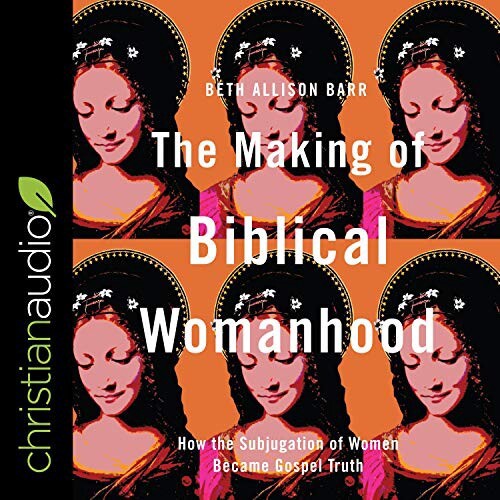
There’s also Worthy by Elyse Fitzpatrick and Eric Schumacher.
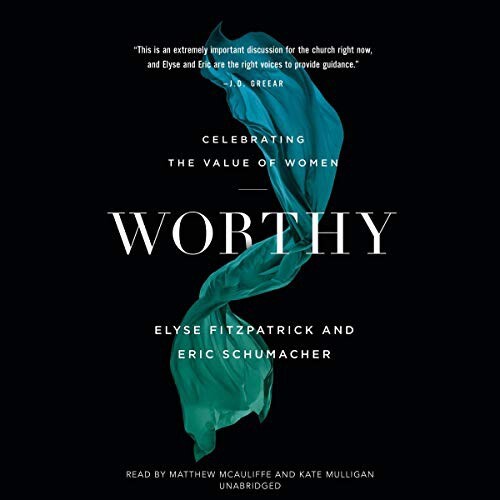
Or would you prefer a book about the biblical response that a pastor SHOULD have when facing abuse in his church (and in this case, his family)? Read Devil Inside by Jimmy Hinton.
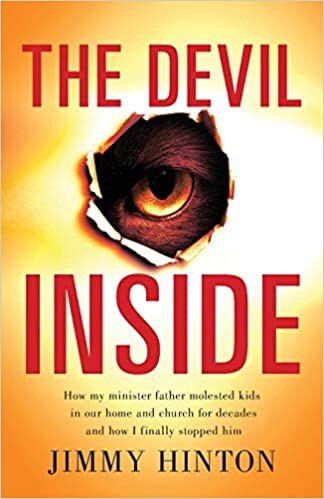
Or read the memoir written by Sandy Philips Kirkham, a woman who was groomed/tested and sexually abused by her youth minister for years before she was able to break free from his clutches — only to have her church ask HER to quietly leave the congregation while they gave HIM a send-off party. She’s an advocate for abuse victims now. Her book is called Let Me Prey Upon You.
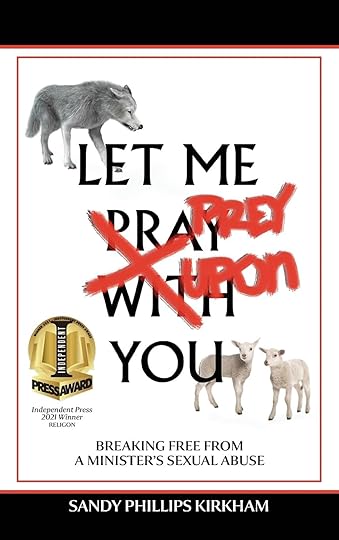
“I really don’t have much time to read.”
“No problem. Check out the Preacher Boys Podcast. It’s on multiple streaming platforms and YouTube. The host does a great job recommending resources that you can use to follow up and do your own research. The best part of the podcast though is actually listening to survivors of abuse speaking openly about what they’ve endured and how they are recovering now.”
https://www.youtube.com/channel/UCUnhn-4KoLWr0ffbPjMf-gQ/featured
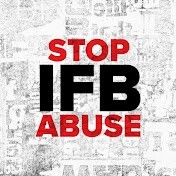
“I don’t listen to many podcasts.”
“The Preacher Boys YouTube channel also has several short videos as well.

Of course, the crux of the conversations had with these kinds of church members isn’t the preference of media or genre or how much time they have. I know that. I realized a long time ago that the reason they don’t discuss or learn about the abuse around them is that they JUST DON’T WANT TO.
They are comfortably busy. They are happy in their little bubble of service, believing they are working for “the Lord,” and ignoring every sign that they are actually working for someone in church leadership whose whole motivation of gaining and maintaining power is disguised as a humble desire to reach out and share Christ with the community.
While they are busy, busy, busy, the people in their church and community who are hurting from abuse cover-ups and recurring PTSD are instructed to “Let go and let God,” a manufactured nonsense phrase that roughly translates to “We won’t help you. Exposing this problem might damage our ministry. Just trust God to handle it for you. Or, better yet, approach the person who abused you and forgive them.”
No.
No victim should ever be encouraged to sit down with their abuser and forgive them for the trauma they inflicted. Especially not when those who were victimized are children.
So where can survivors turn for spiritual help if they can’t trust church leadership? Some walk away from church altogether. Others turn away from God because the abuse inflicted on them was done in His name. But some find podcasts and documentaries. Or memoirs and academic studies.
And some buy books of contemporary Christian fiction, knowing that every time they turn the page, they will find healing, encouragement, and truth.

October 15, 2021
When Ratings Lead to Censorship

I grew up in a very strict religious household and attended church my whole life. When the term “cancel culture” began to be bandied about, I watched religious leaders mourn the “attack” on the ideas and people they held dear. Their insincere worry made me roll my eyes.
You see, churches invented cancel culture years ago.
In just my lifetime, I’ve personally listened to preachers/special speakers demand that Christians not participate in “worldly activities” such as attending movies, watching television (although sports were usually not included in the ban), reading the “wrong” books, listening to music “with a beat,” dancing, dating, and wearing clothes that someone in leadership deemed “unsuitable.” Of course, none of these prohibitions are from the church’s claimed source of power — the Bible. Every one of those sanctions was based on the preferences of the people in leadership
Today we are on the cusp of the New Reformation when the actions of a few powerful (and usually self-appointed) leaders are not only being questioned, they’re being unsentimentally discarded. Some Christians are struggling with the changes. They’re uncomfortable with the questioning of old traditions and beliefs and the deconstruction of standards and practices long held by their churches. But there is also an overwhelming wave of people who welcome transparency, true biblical doctrine, and the protective justice that has been missing for so long.
So, when I landed on a post in a FB group for readers of Christian fiction and found a call for a rating system, I had to share my reservations. I write contemporary Christian fiction, and I usually enjoy the group and have even made some friends through the page. But I cannot get behind a rating system for novels to make sure that they are “clean enough” or “Christian enough” for believers.
The original poster was complaining of not knowing, before buying or reading a book, whether or not it was what she would consider inappropriate by including such things as passionate kissing and touching, violence, “bad language,” or sex (either implied or graphic) The immediate response to her suggestion of a Christian novel rating system was overwhelmingly positive, but a few pointed out that such a system would be hard to police. One person suggested an IMDb-like rating based on “How much cussing, 1–2 times, 3–5 times, 10+.” Yet another poster explained how she dings author reviews for their use of “inappropriate” situations or language, and that somehow it’s okay because she always explains why she gave the lower score in a disclaimer.
As an author, this kind of talk scares the fire out of me.
I’ve watched rating systems from movies and television shows get used by religious leaders to control what people in a church’s congregation are “allowed” to do and still be accepted as “good, godly people who are living for the Lord.”
I’ve heard that I should never be seen walking into a movie theater for fear that someone who knew I was a Christian would assume I was there to watch something inappropriate (which, depending on the speaker could be anything from a Disney movie they don’t like to gore and horror to hard-core pornography — it is all painted with the same brush). Years ago, it was preached openly that no Christian should watch “R-rated” movies, not even in their own homes (and I’m embarrassed that I once bought into that teaching). But then later, it was no R-rated and some PG-13. Then, to be safe, stick with watching ONLY PG and G. Then a call for people to commit themselves to never watching a movie that wasn’t G.
I was also told to not read Harry Potter because J.K. Rowling was attempting to lure children into practicing witchcraft (so when she was recently “canceled” by non-Christians for expressing her opinion, it was deja vu). Oh, and no Christian should EVER read Dan Brown’s Da Vinci Code! (Of course, that guaranteed it would become a best-seller despite its sloppy descriptions and research).
Knott’s Scary Farm or Universal Studio’s Fright Nights? Not for Christians — but if you do go, keep it quiet. No bars and sometimes no restaurants where alcohol is served. It would be a bad example to put oneself in a building where the end goal is drunkenness. Most pastors have no problem with going to sporting events, though. I guess it doesn’t matter if the beer is flowing freely all around you if a ball or puck is being moved from one side of the field/rink/court to another.
Even the internet is viewed with suspicion. Christians in some circles are warned against having computers in their homes or internet access on their phones. They are discouraged from listening to podcasts or reading articles and blogs they might discover through Twitter, Facebook, or Instagram. Why shouldn’t they research things for themselves? Well, because they might get confused as to what is true and what is a lie. Instead, they should look to the pastor to tell them what they need to know.
Honestly, it all seems a bit silly. I mean, who would take any of this seriously?
Many, many people would. They do. And they are proud of it. Their strict lifestyles make them feel proud that they are so different. So unusual. So — to use the word they misappropriated from the Bible— peculiar. It gives them something to talk about. When someone doesn’t fall into line, it is shocking and scandalous and something they can gossip about with their friends.
Of course, I could look at this odd behavior and say, “So what? If they want to restrict themselves with a bunch of rules, let ‘em!” Except I can’t. You see, I was part of this system for far too long. I lived it. I even taught it to a degree. Now that I’m out and I know real freedom, I want others to know it too.
But wait, there’s more!
It turns out that these restrictive practices are a cover for spiritual abuse. When people are discouraged from taking an active part in their greater culture, don’t have access to seeing, reading, or listening to how the majority of people behave, or are discouraged from asking questions or discovering answers on their own, they are easier to control. They more easily believe that they are the only ones with “the truth” and anything that contradicts their worldview is seen as dangerous. It is so much easier to control and abuse people who believe that they are in the right and that no one else has the secret to living life the “correct way.”
And if something in that organization hurts them? Well, they get the blame. They must have done something wrong. Must have dabbled “in the world.” After all, the leadership/pastor/church is pretty perfect so it couldn’t be their fault, could it? Survivors from this kind of spiritual control and abuse have eerily similar stories. If they insist that the leadership of a church was in the wrong, they are pushed out and openly criticized for claiming to be victims. Then the whole thing is hushed up, buried, and forgotten by all but those who were hurt and abandoned.
Abuse doesn’t happen all at once. It takes patience. It takes testing. Abusers introduce their control a little at a time. How much will a victim accept? How far can the abuser go? The intended victim might balk at being told they’d have to give up reading, but they can be told it’s better to read non-fiction suggested to them by the church rather than fiction (after all, “fiction” is just another word for untrue and who wants to fill their mind with lies?). If they are going to read fiction, perhaps they shouldn’t read anything where physical attraction or kissing or sex is mentioned. Then a rating system is suggested so readers can be “protected” from unsuitable material. Then finally, just to be safe, the members of a congregation will be told to avoid fiction — even Christian fiction — altogether.
And there it is. Censorship pure and simple. Suddenly my novels exposing spiritual abuse are in danger of never being read by the people who need them most.
Laid out like this, it all seems far-fetched. I wish it was, but I’ve witnessed this systematic destruction of personal freedoms/decision-making first-hand multiple times. It ALWAYS starts small, then grows until it overtakes a person’s life to the point that all they have the time, energy, or ability to do is “work” for the ministry who took away their freedoms one small piece at a time.

October 14, 2021
Musical Nutrition for the Author’s Soul

I woke up knowing that I had a great writing day ahead of me. My last beta reader gave me fantastic notes, and I was going to finish up the final edits of my third book. Then, I needed to fix the ginormous plot-hole I’d discovered in my fourth book that I’d realized the night before. I wasn’t worried about that, though. I had mentally worked out a solution and was ready to get typing.
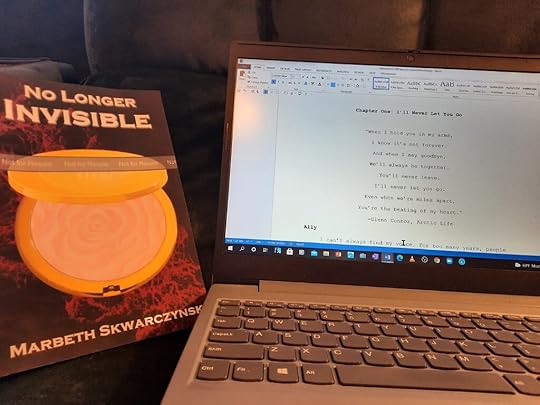
But first, I made a playlist.
I know what you’re thinking — typical writer. Procrastination is what we’re known for. Except it wasn’t procrastination at all. It was nutrition. I was breaking my creative fast.
As a writer, I glom onto others’ creative works for inspiration and encouragement. A well-written book, film, or television show can kick-start my own creativity. I’m not gonna lie. I’m a bit of a fangirl. Once I find an author I enjoy, I read everything they’ve written. Going to a movie sparks the same excitement most people only get on major holidays. As for the telly? Oh, I’ll join the show’s Facebook group and laugh at series-inspired memes all day long. And buy the tee-shirt. And the tee-shirt for the spin-off. And the one featuring the logo of the production company.

My favorite creative influence, however, is music. Music is my vitamin-rich energy drink.
In August, I worked on a zero-draft that will eventually be published as Book 5 of The Rose Collection. My main female character is also a music lover. Even though she’s a pastor’s wife, her musical choice has a definite grunge edge. Her husband teases her about it, calling it “angry teenager music,” but cannot see that it reflects how accurately his wife feels. She listens to “angry teenager music” because those songs say everything she cannot.
https://medium.com/media/58d827892be0dd899c4af45dac2ad83a/hrefI know exactly how she feels, not only because I created the character but because I lifted that part of her behavior from my own. While writing the draft, I explored my own use of music and lyrics to express my innermost feelings. I’d done it for years, long before I learned how to speak truth through fiction. Sometimes it was angry music, but sometimes it was happy and bubbly. Or sentimental and sweet. Or uplifting and encouraging. There is music for every mood.
Now that I’m writing full-time, music is a necessity. I made my first playlist for my second novel, Twists, Turns, and Curves. The story lent itself to music. I had that playlist on repeat as I edited the book, getting it ready for publication. That particular collection of music was sweet and uplifting for the most part. It was the perfect accompaniment to the genuine love story in the book as my two main characters grow together while recovering from spiritual abuse and manipulation.
Plague of Lies (The Rose Collection Book 1)Twists, Turns, & Curves (The Rose Collection Book 2)https://medium.com/media/a60e877a987e1ea837dbbac343959cc3/hrefBook three, No Longer Invisible, has a very different feel because it deals with the difficult topic of physical abuse disguised as discipline. My main character’s desire to escape and her personal growth as she recovers from her abuse call for music ranging from sad and lonely to full-on girl-power jams. After completing my playlist for No Longer Invisible, I got started on my final edits. I was finished in less than an hour, and I was pumped. Again, the playlist worked its magic.
No Longer Invisible (The Rose Collection Book 3)
https://medium.com/media/8a51987a8de1573fe53c6e2a1cc43e43/hrefMusic moves me. Sometimes it makes me dance. At other times, it moves me to tears. I love it all. Now that I’m starting edits for book 4, Reinvention, music is front and center. My FMC is the ex of the lead singer of a band featured throughout my series, so every chapter begins with lyrics from his songs. Because the novel is split between two main characters, the playlist will reflect that division. Her music will be more upbeat, while the music influencing my MMC (NOT the ex — dun, dun, DUN!) is edgier. Both types of music will follow the characters’ arcs as they confront and recover from the abuse they experienced in childhood.
https://medium.com/media/dda4f6c3d1b4db39a405f9d551ccf6c6/hrefWhile editing this particular manuscript, every new song suggested on my YouTube app has fit beautifully into the novel’s tone. For my MMC, his story is particularly echoed by the new Imagine Dragons album, Mercury. I’ve already put many of the tracks on the playlist. My FMC is further ahead in her recovery, so there’s also room on the soundtrack for new wave, funk, and pop. As a result, some of Duran Duran’s new music from Future Past will be added as well.
Music recharges me. It feeds my imagination. It is part of my balanced creative diet. And I am not alone! I’m now talking to other authors, listening to them as they speak about their influences, and feeling closeness and camaraderie with others who also take dictation from the voices in their heads. These are my people. We delight in our musical nourishment even as we dutifully write about worlds inside our minds. The soundtracks we create help us bring those worlds to life and in turn, feed our souls.
https://medium.com/media/77fcf29e2935b749dbffeba8664d728b/href



